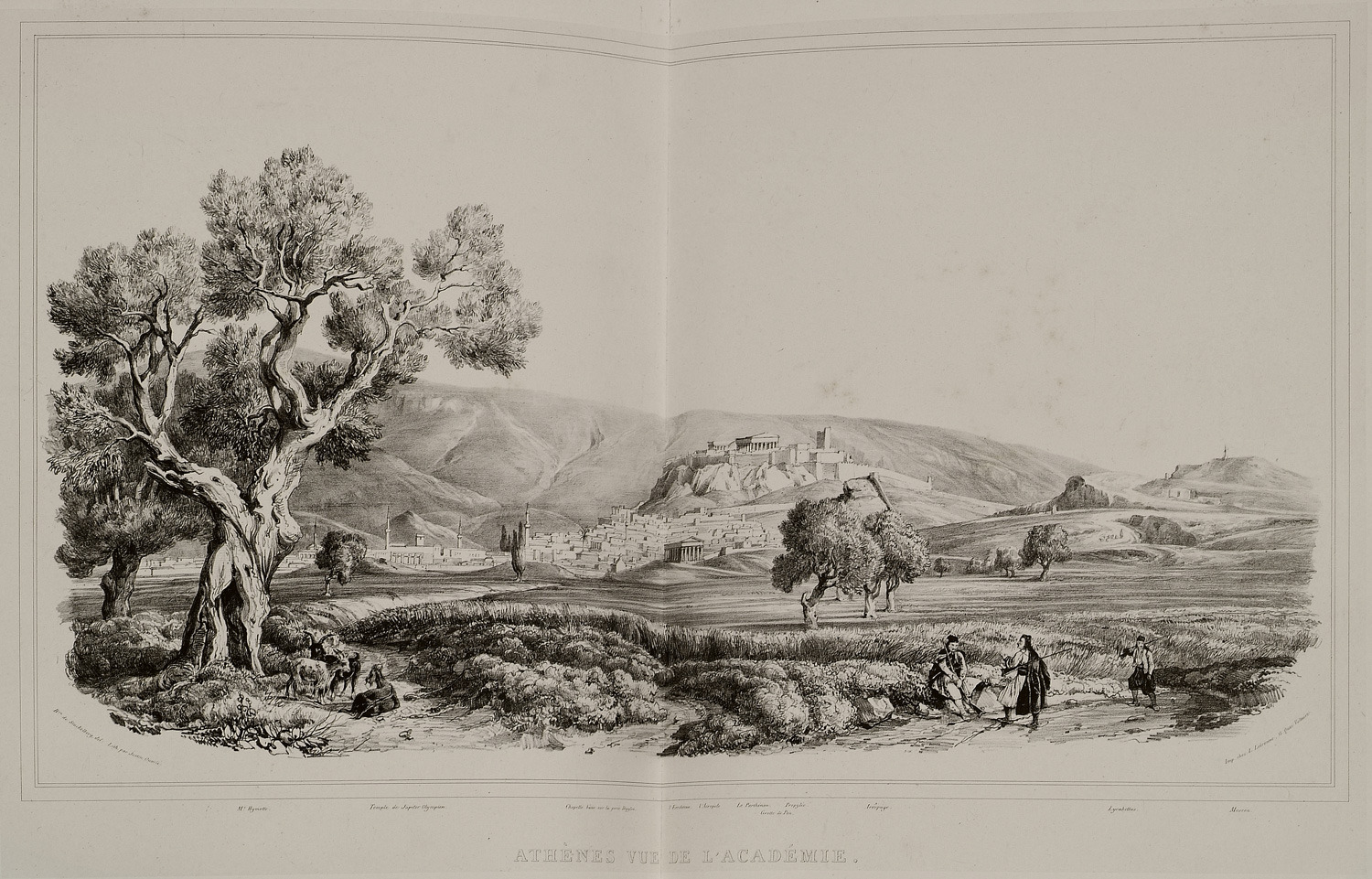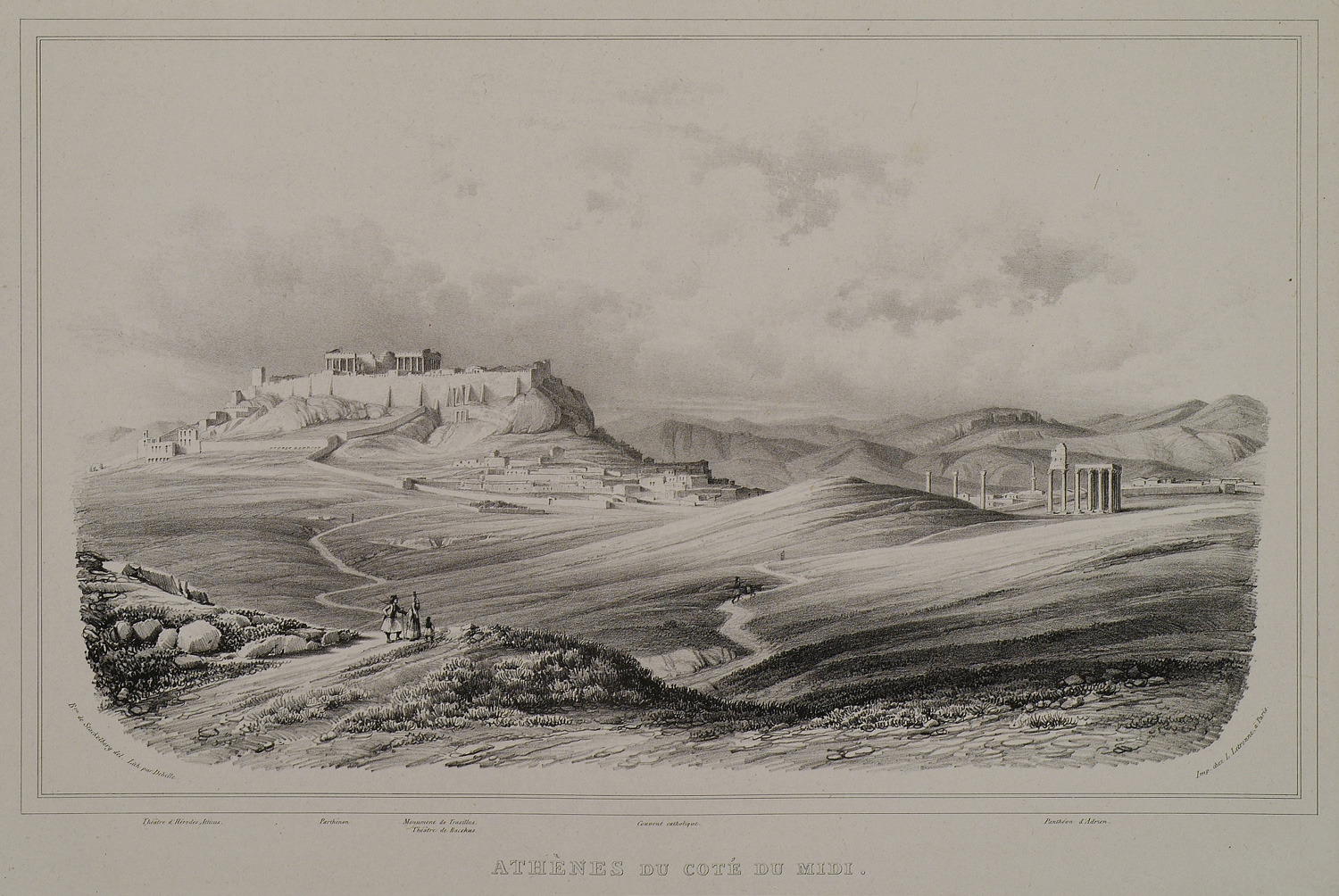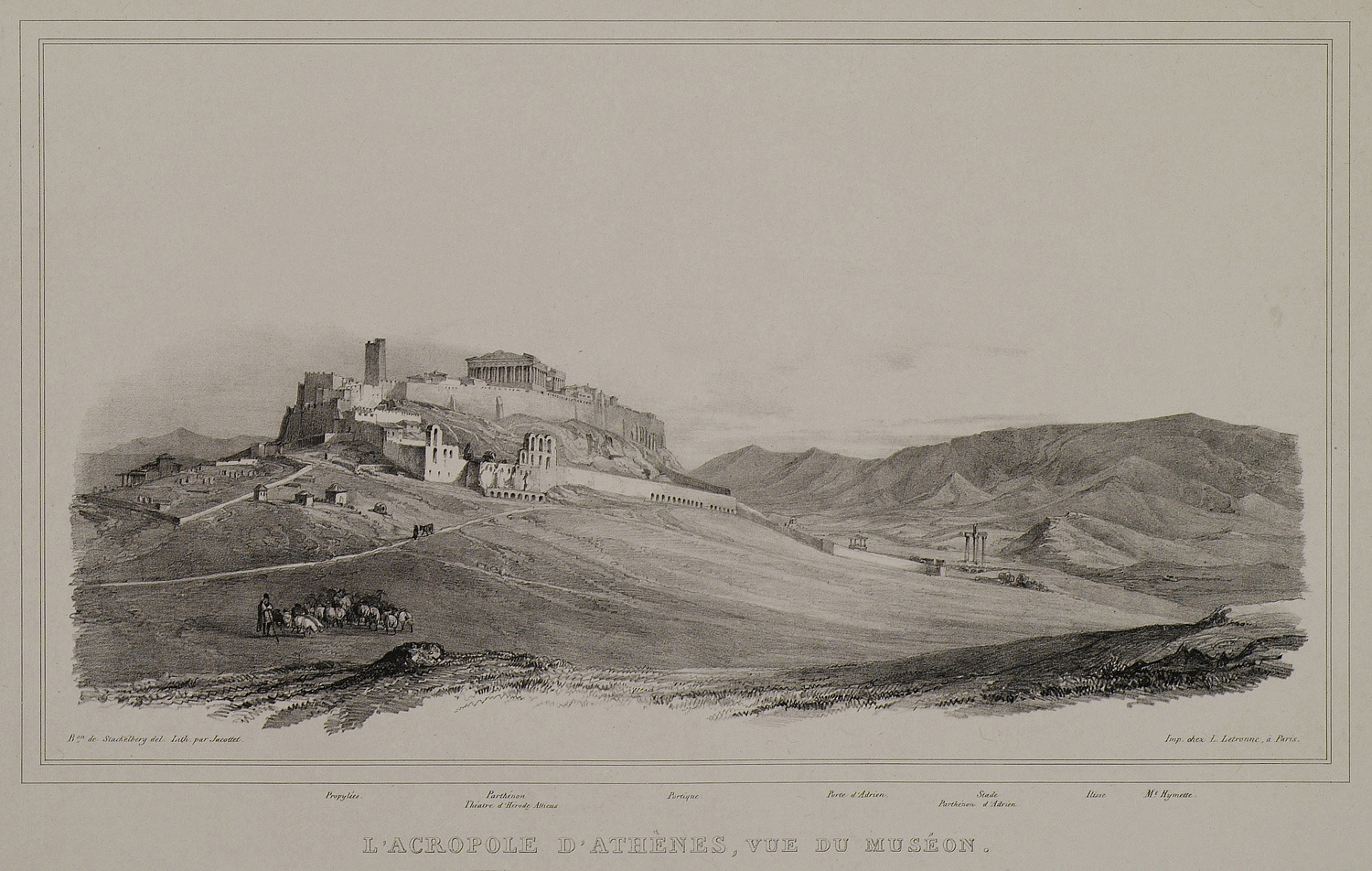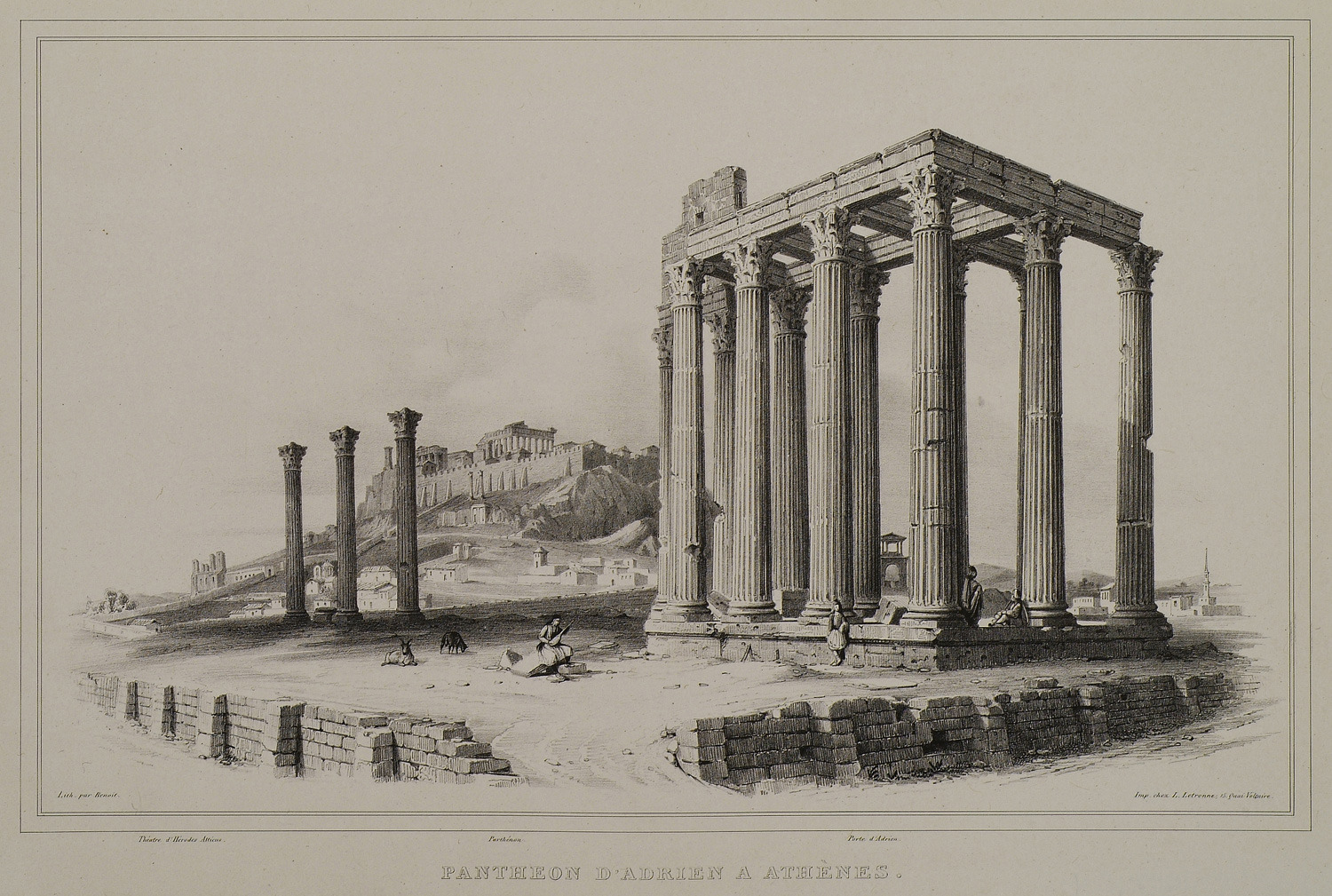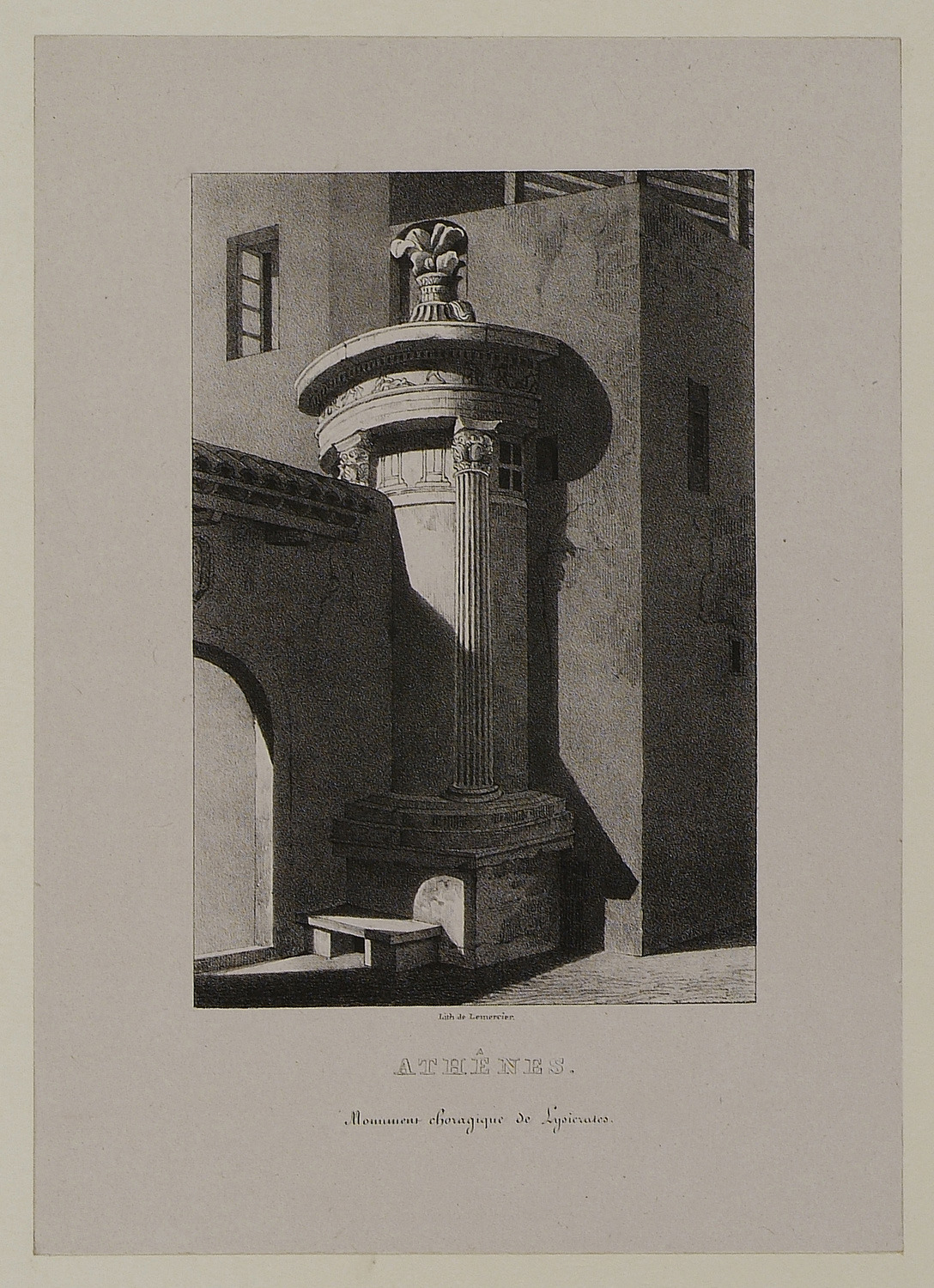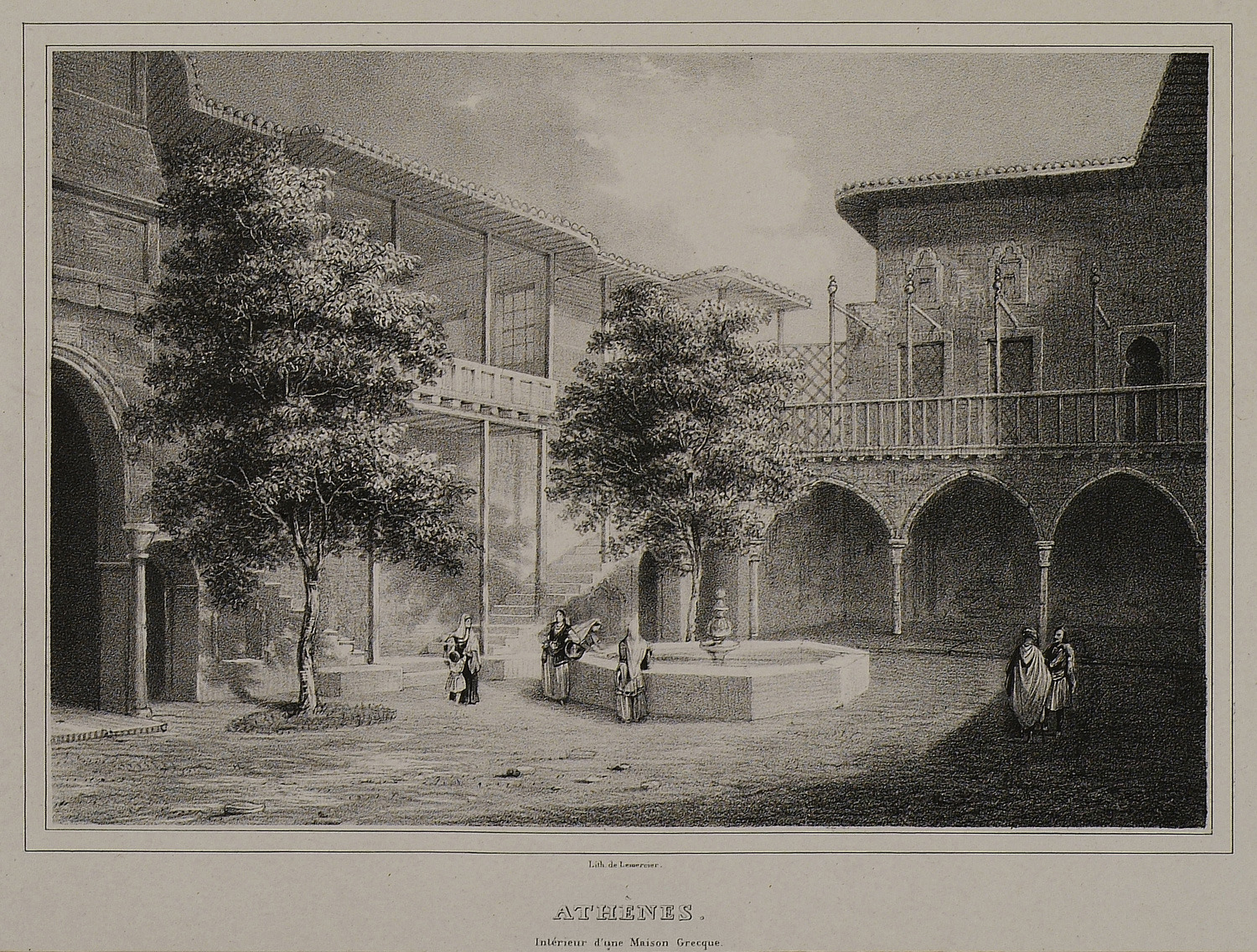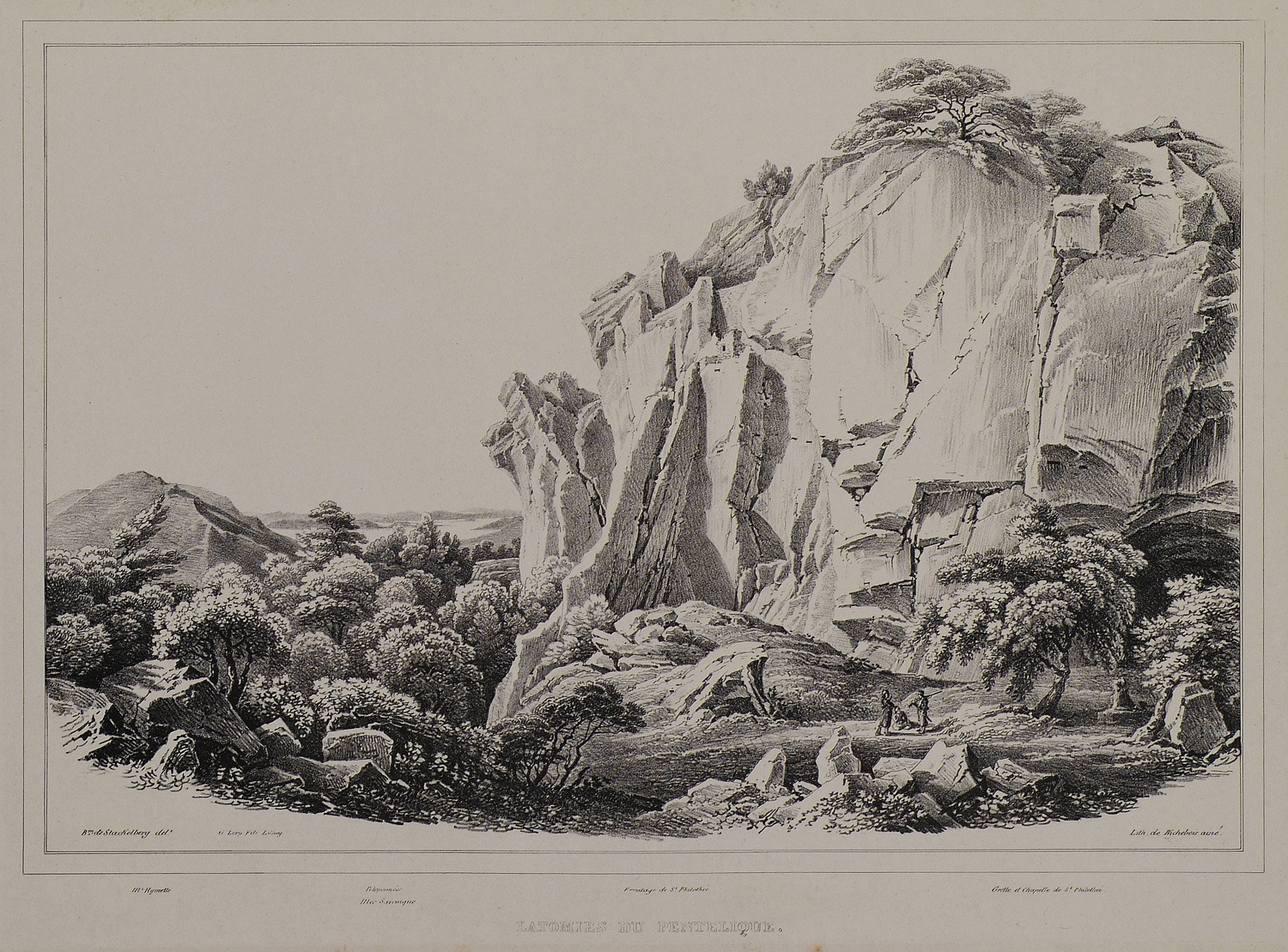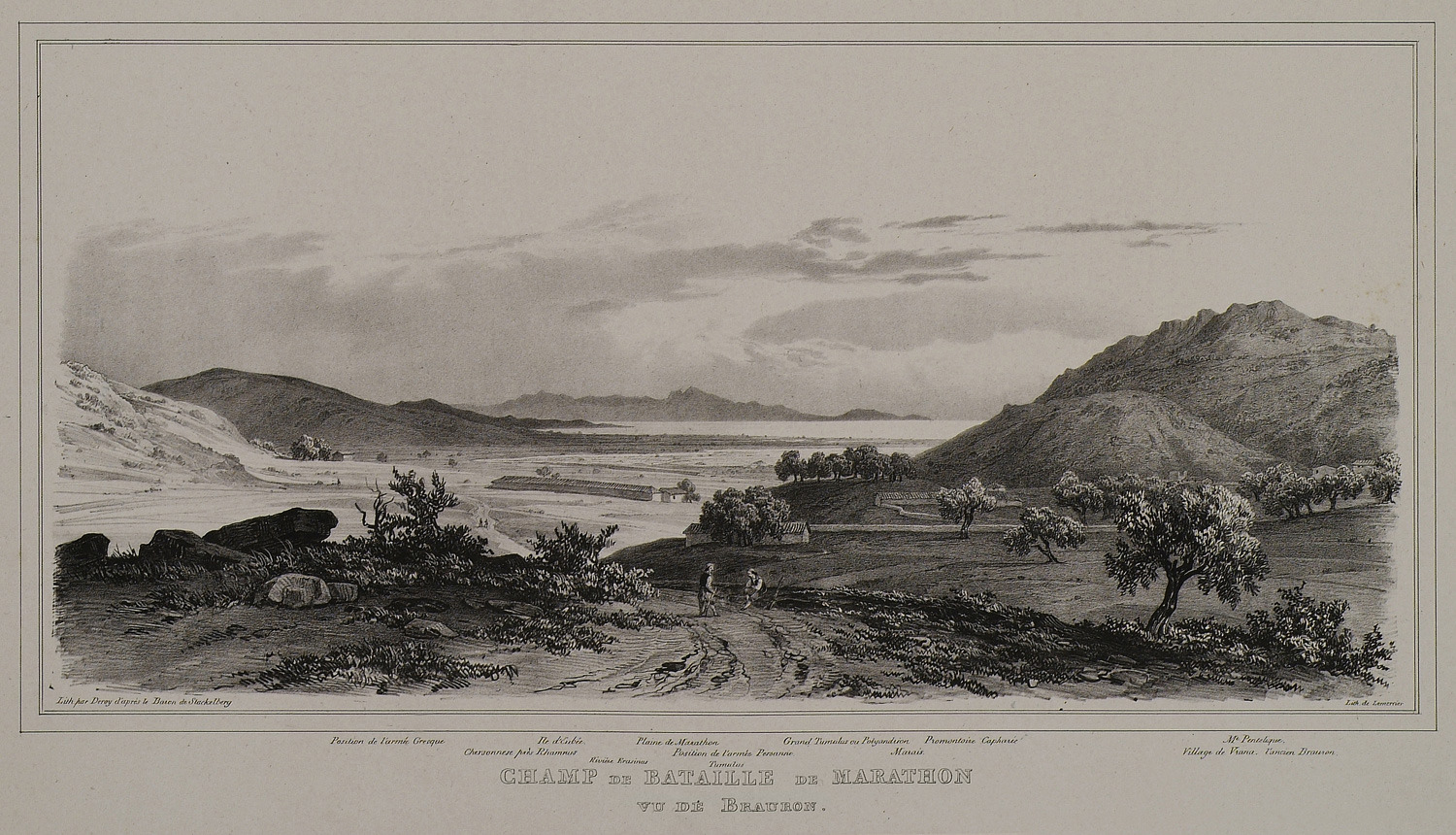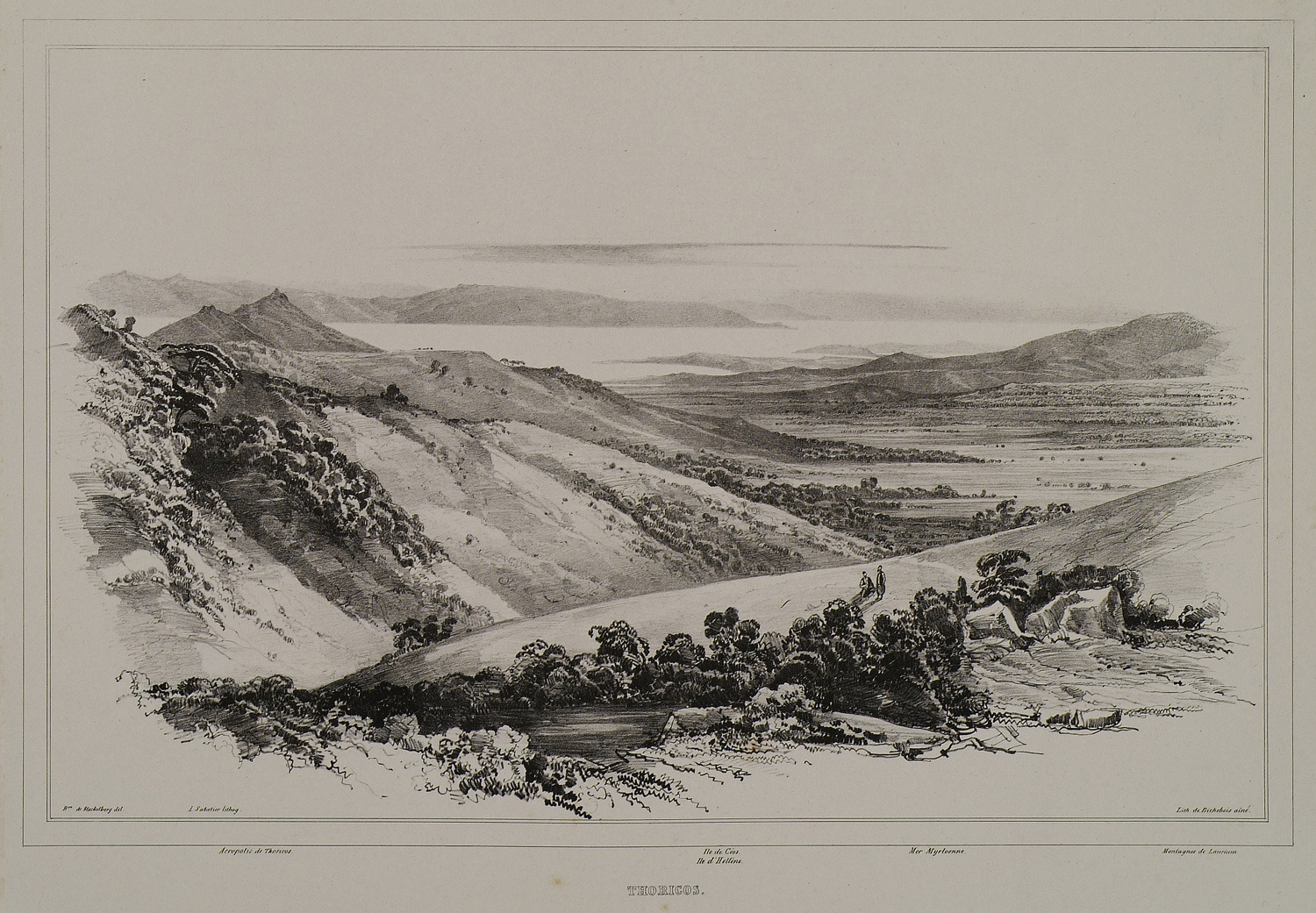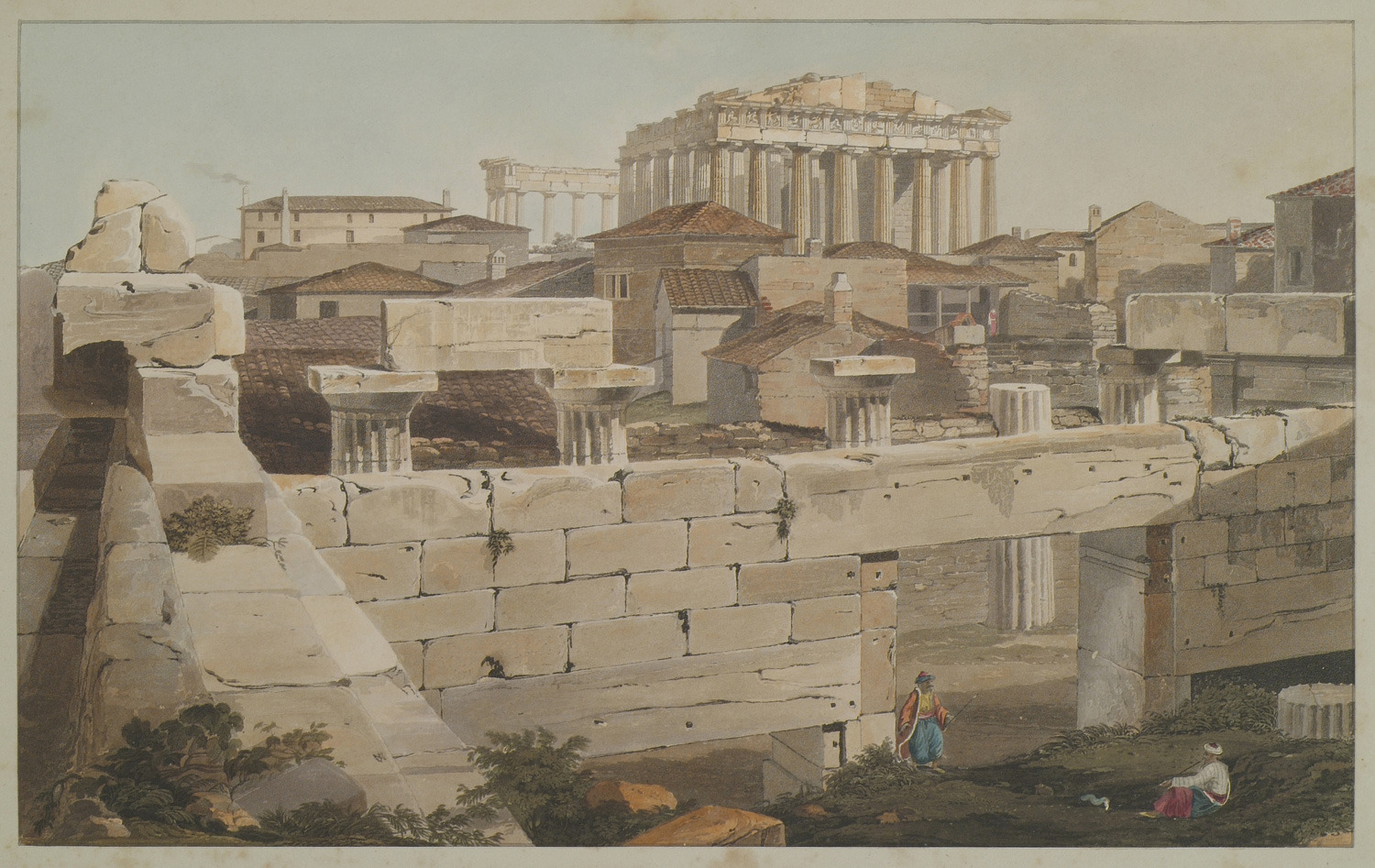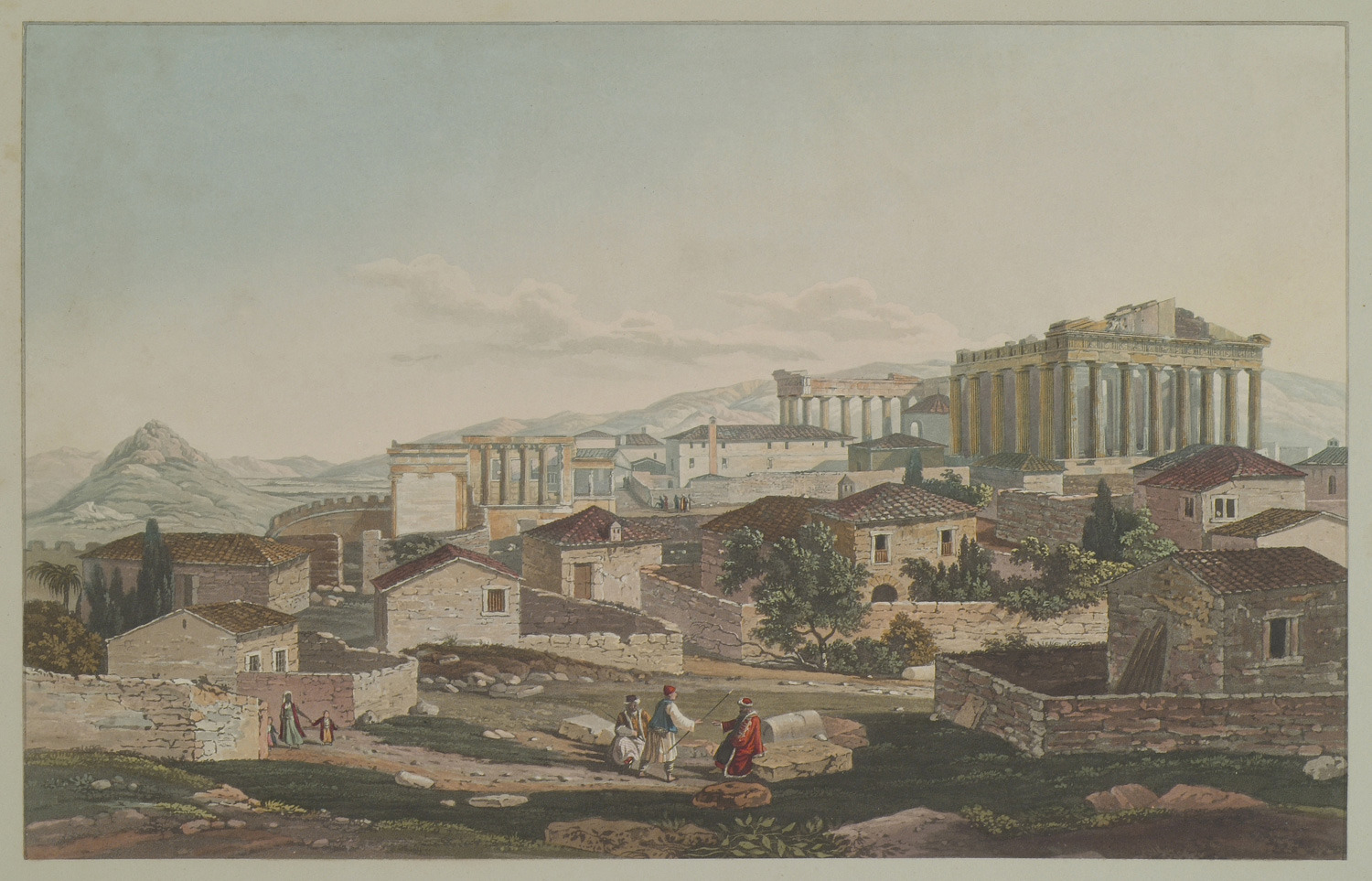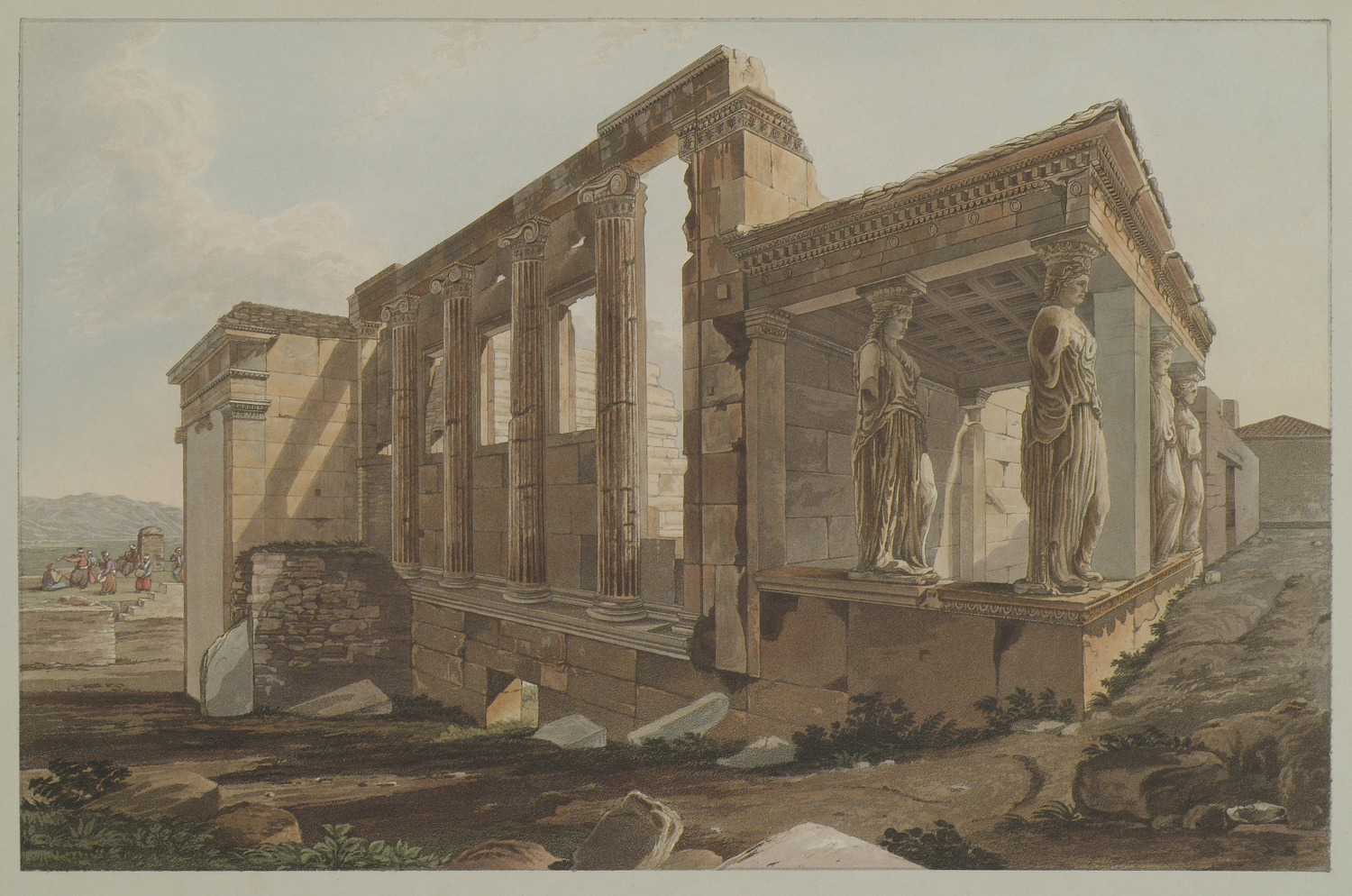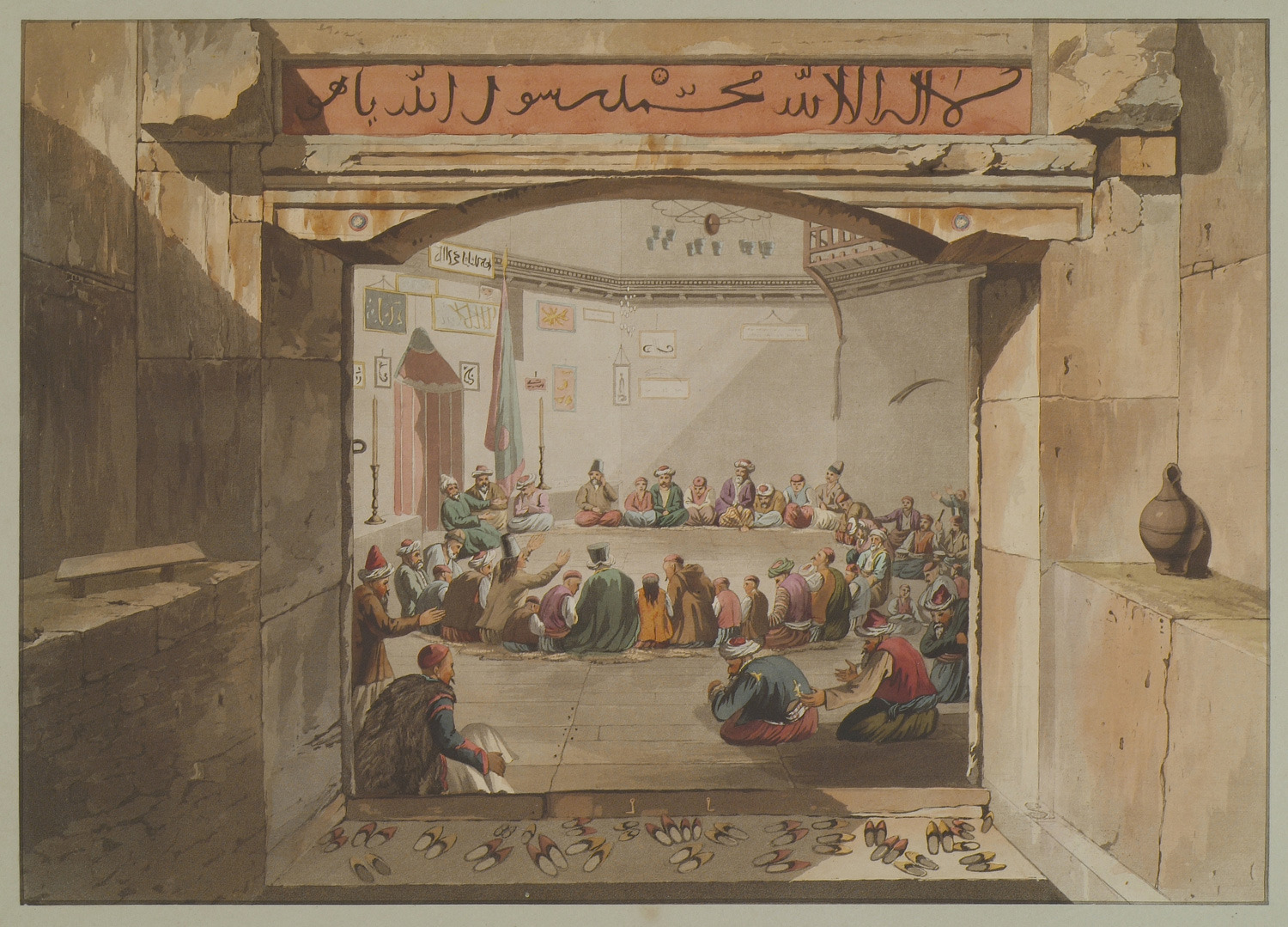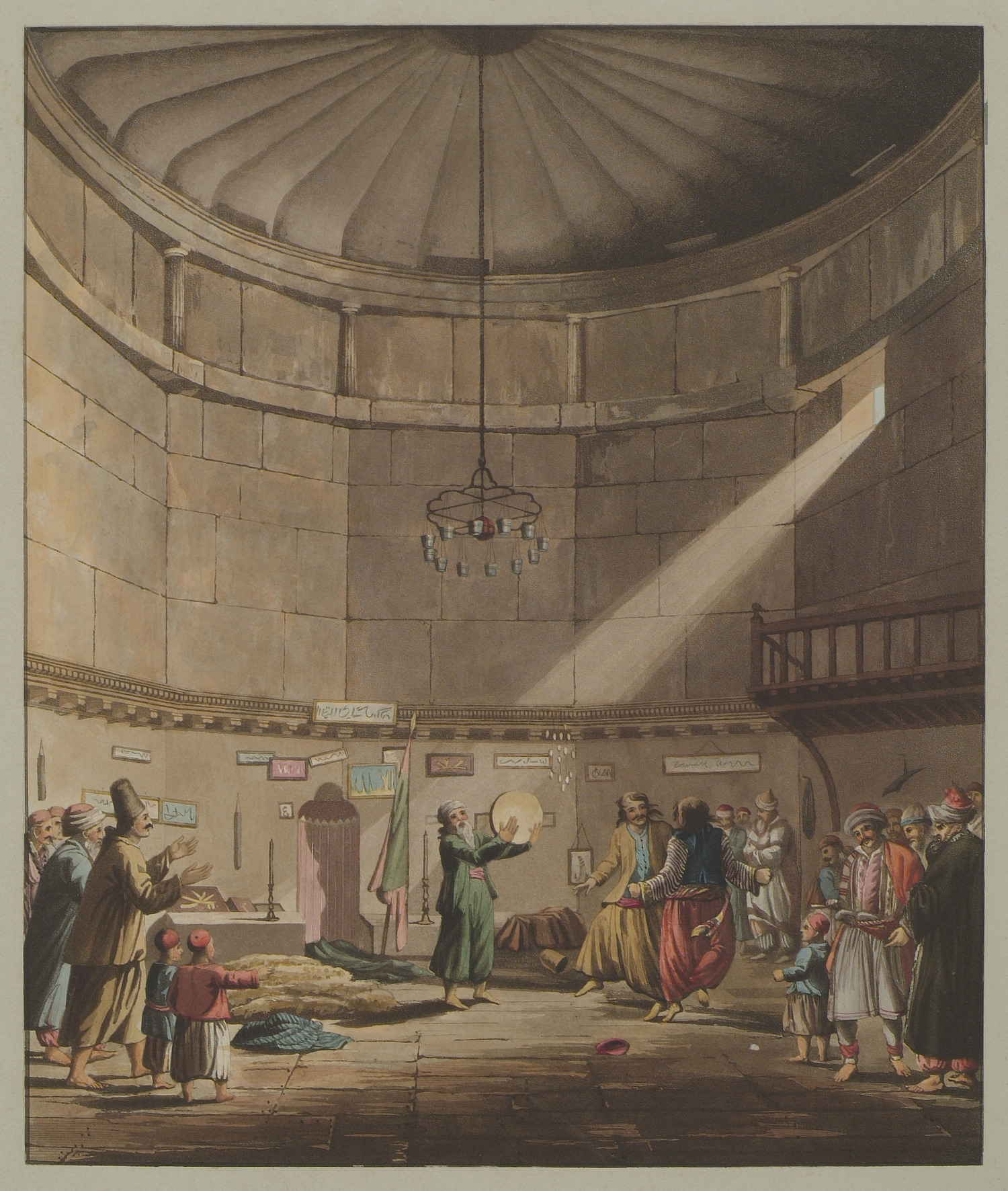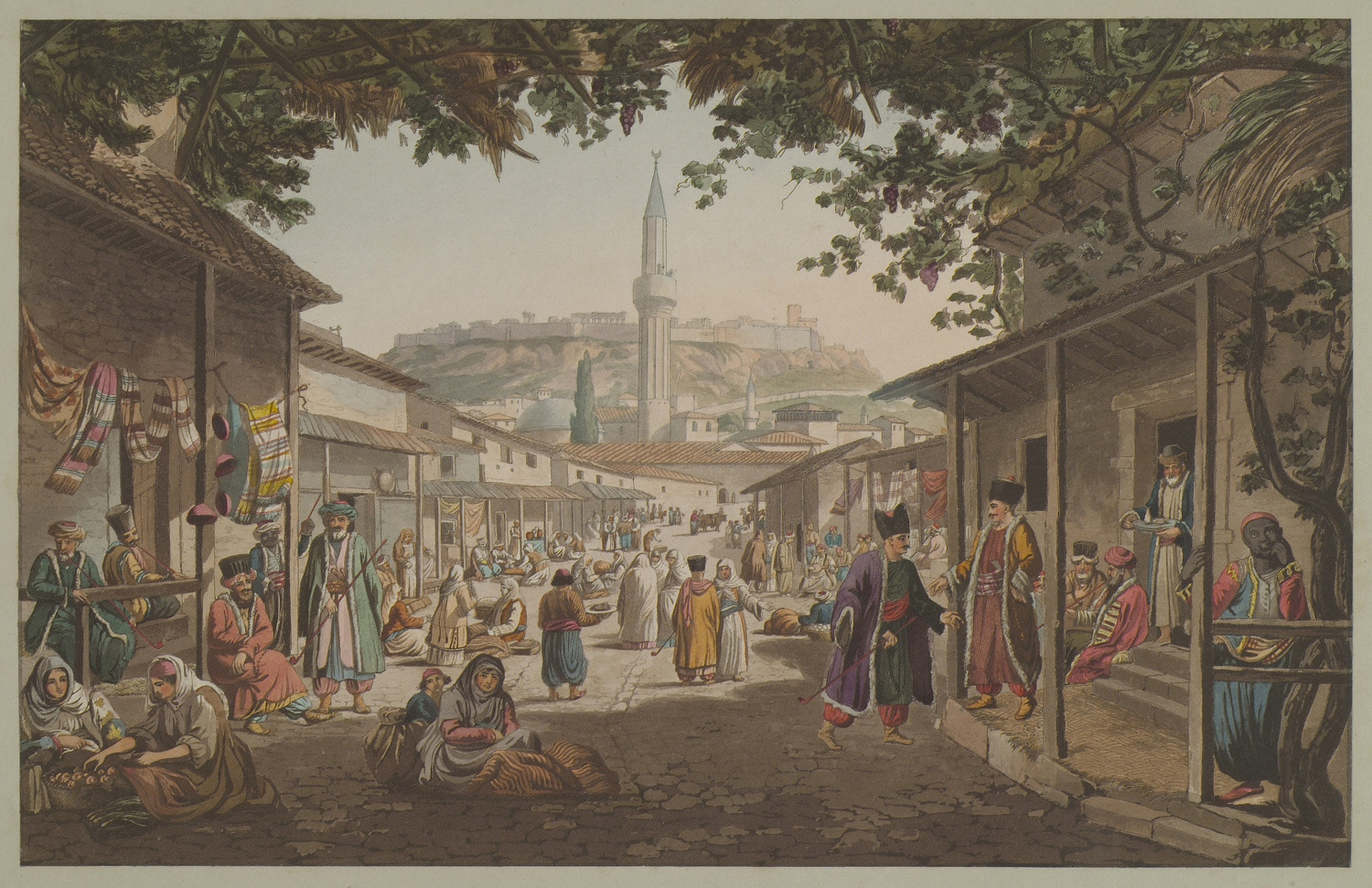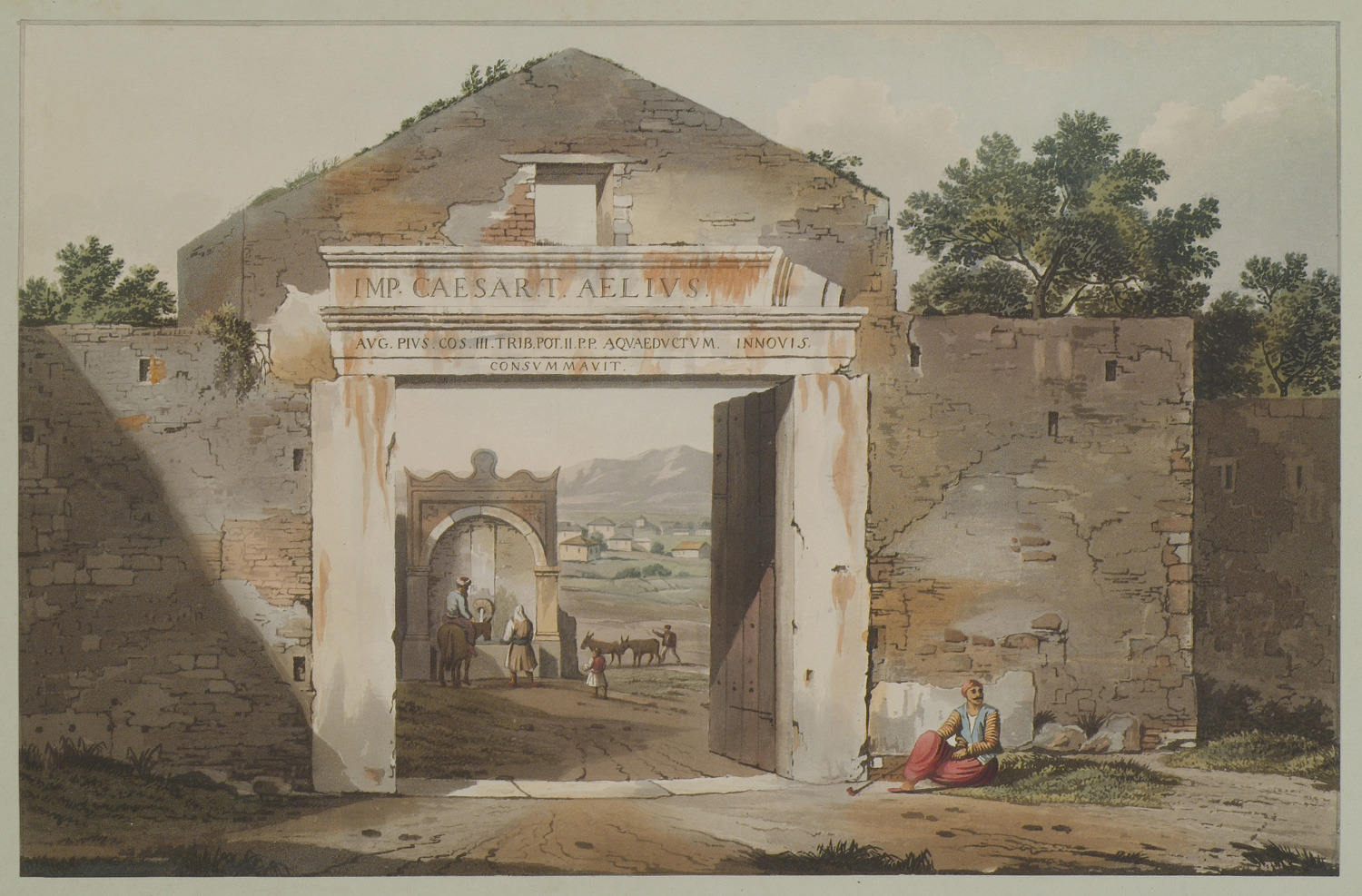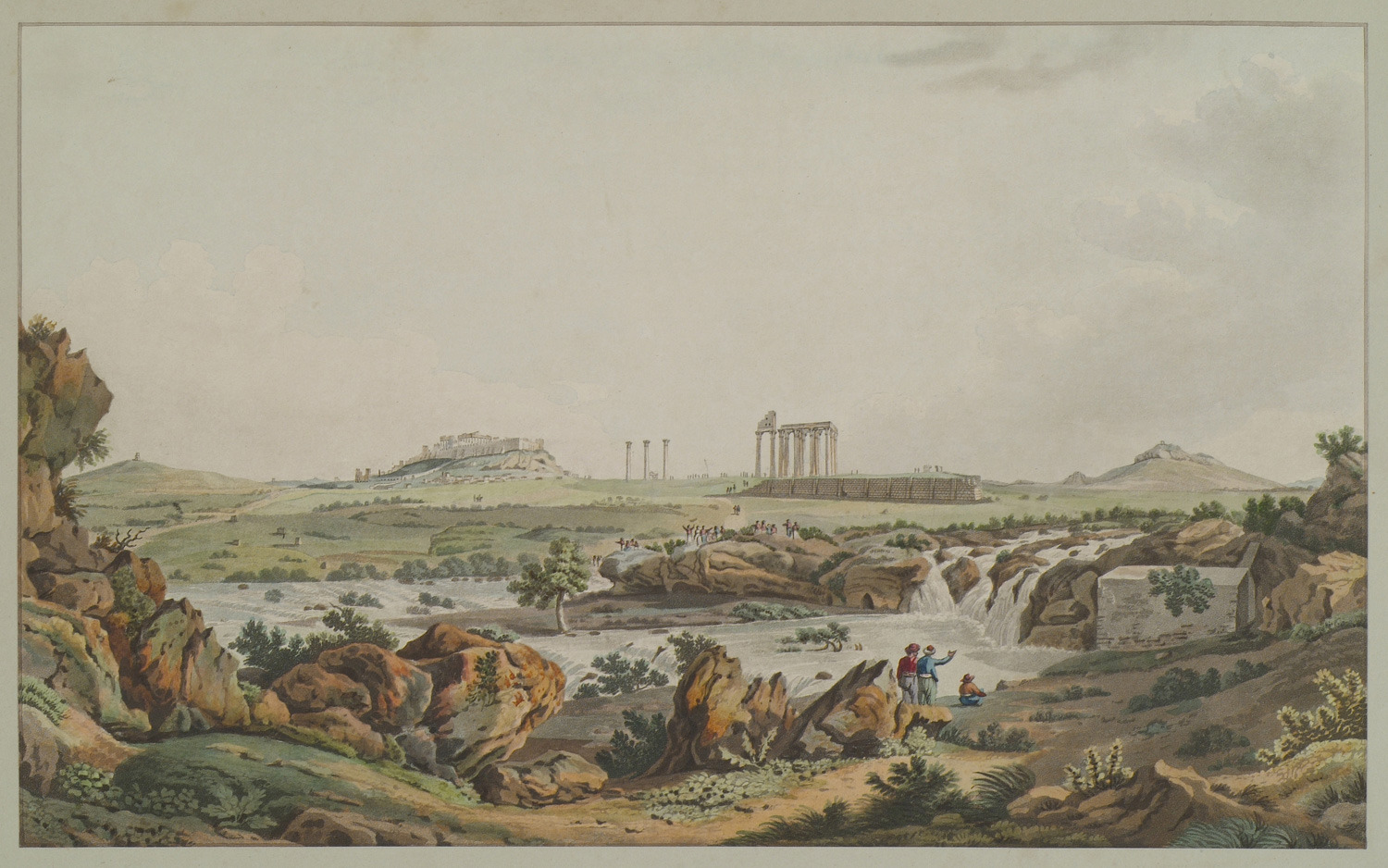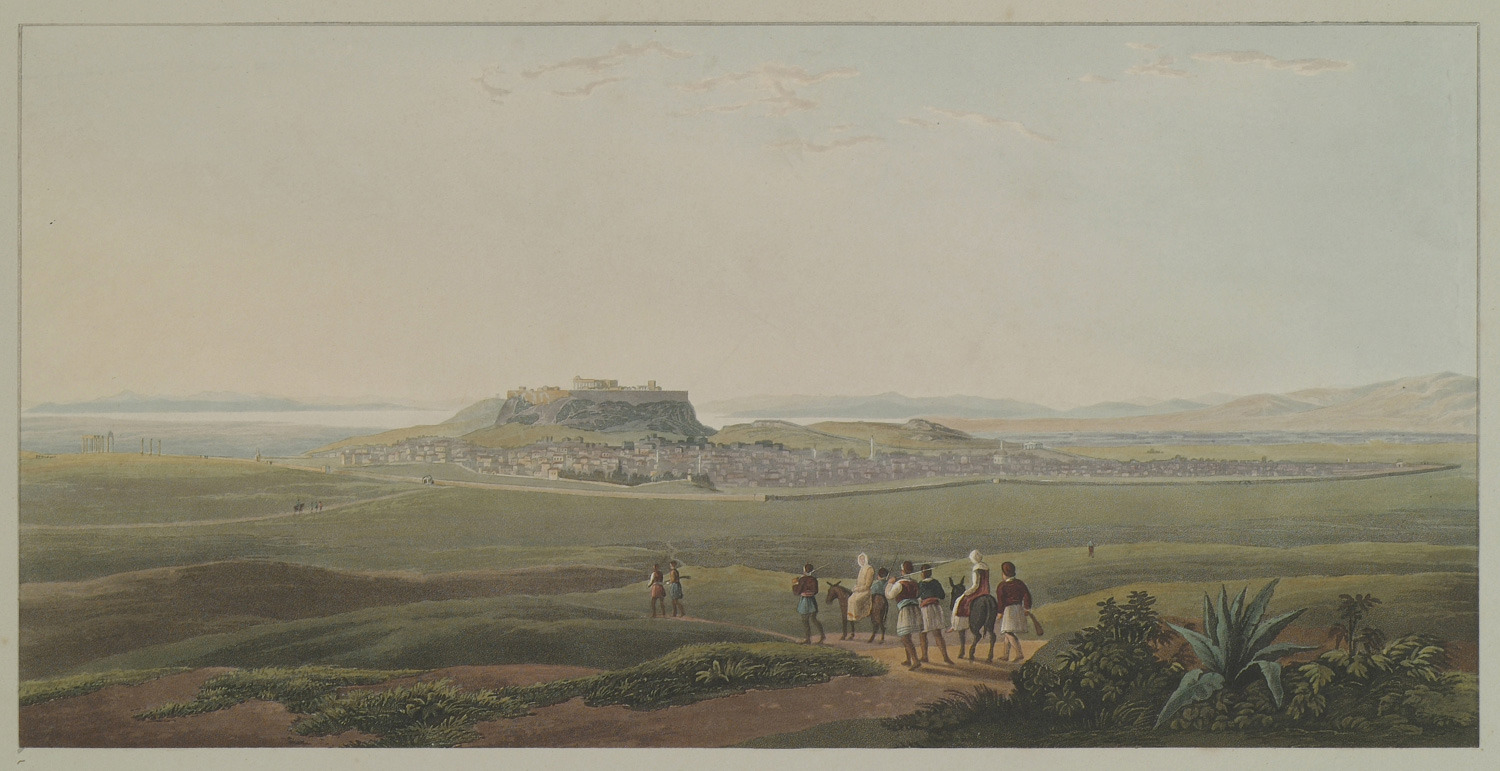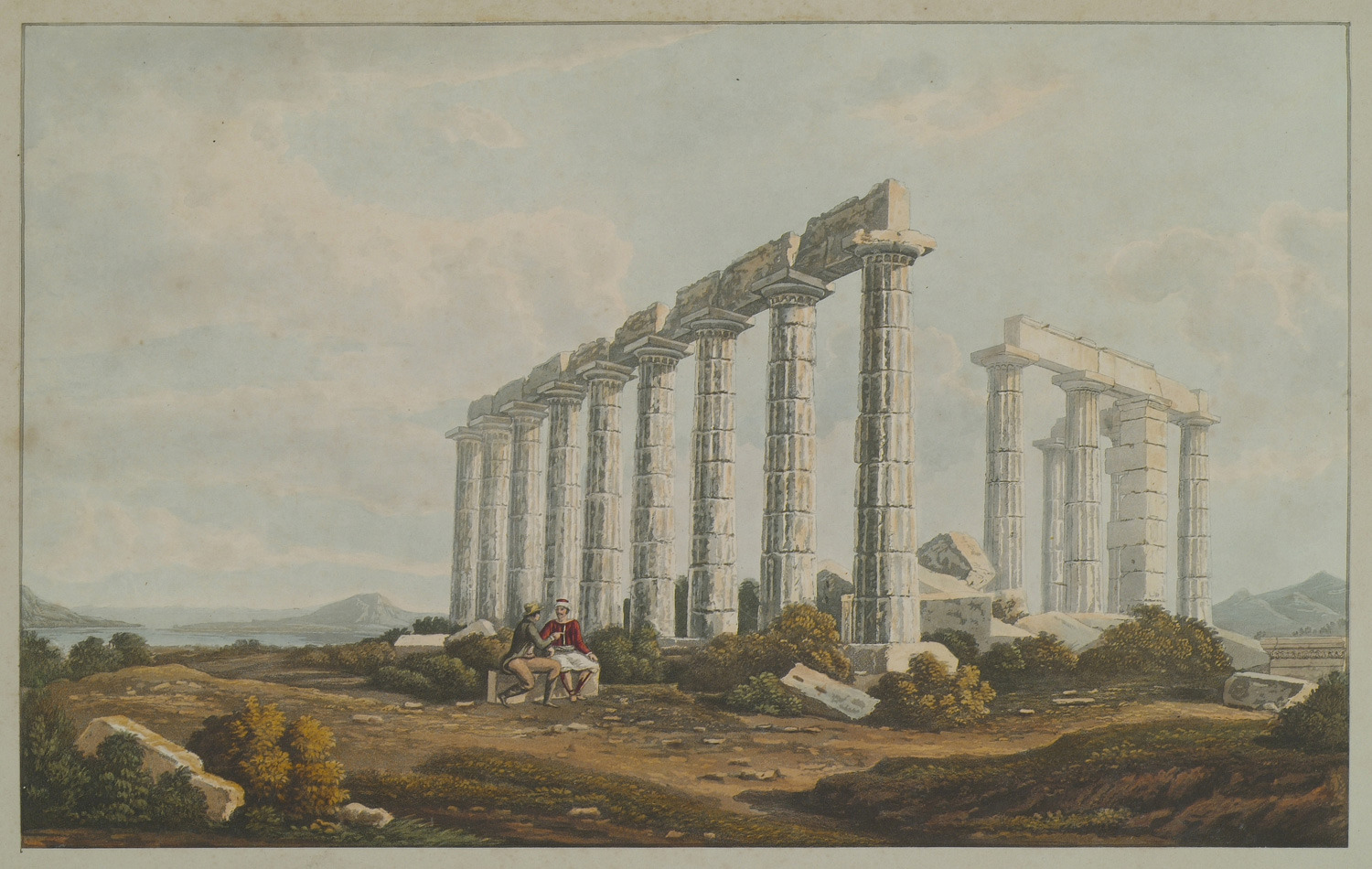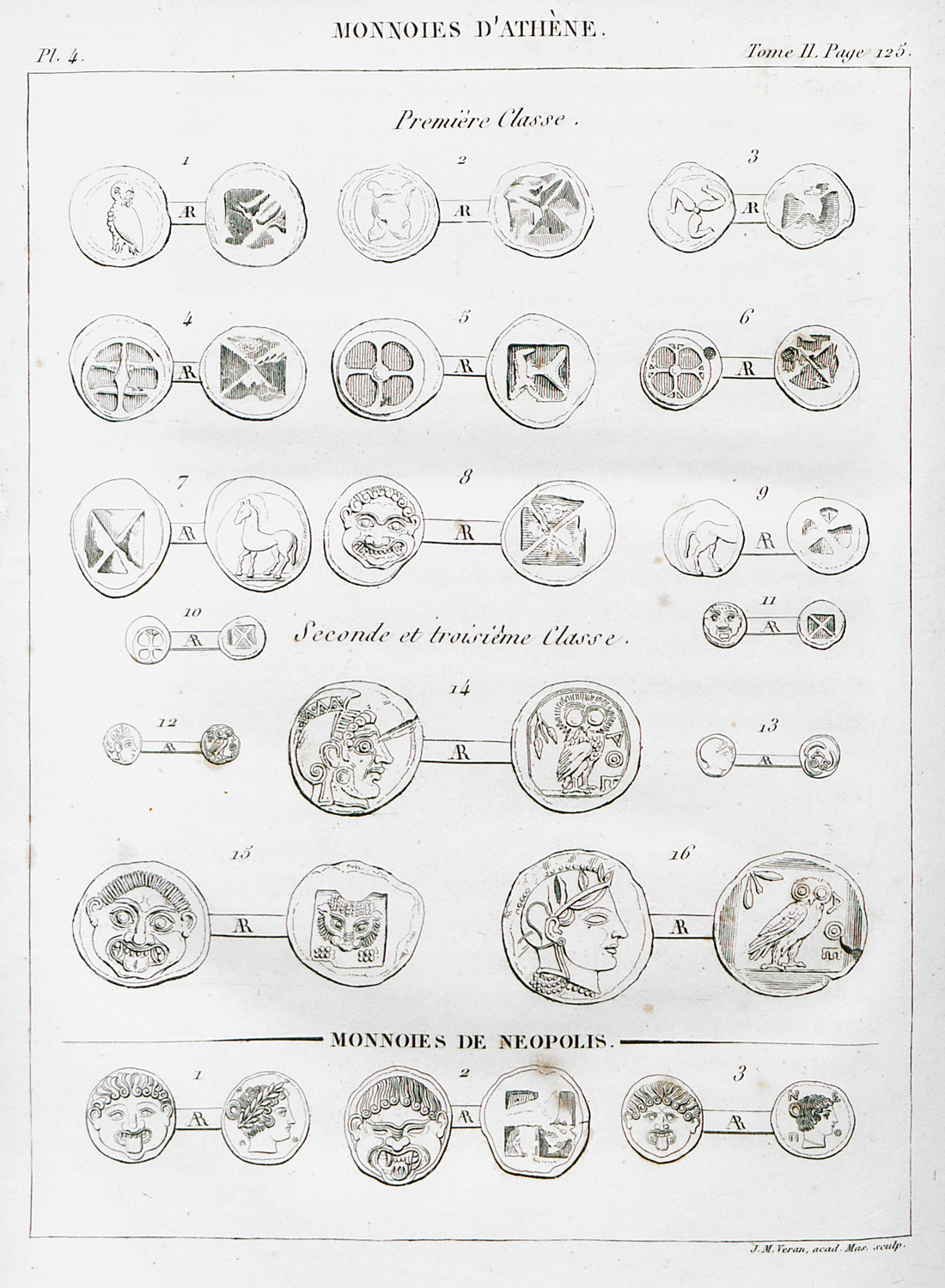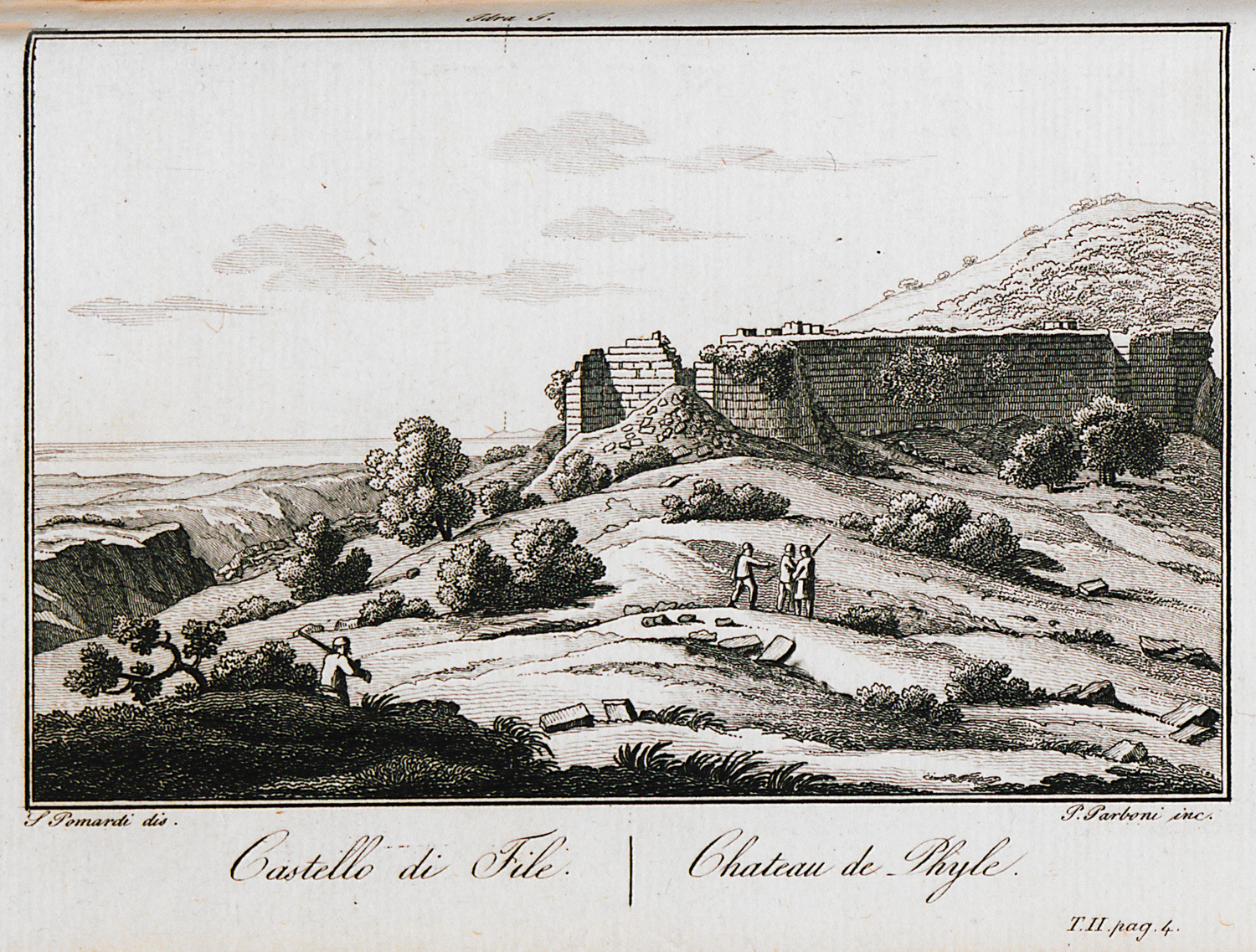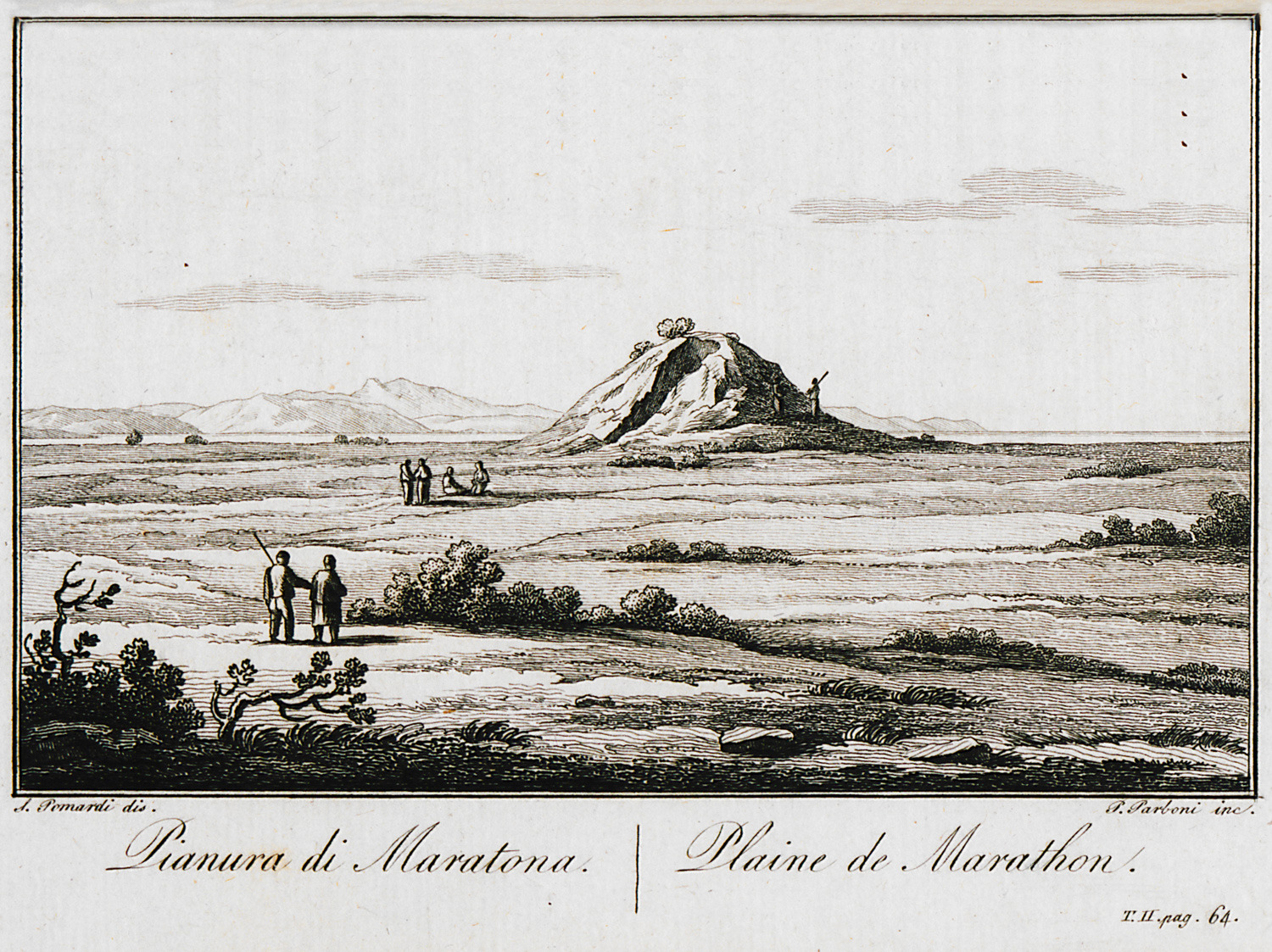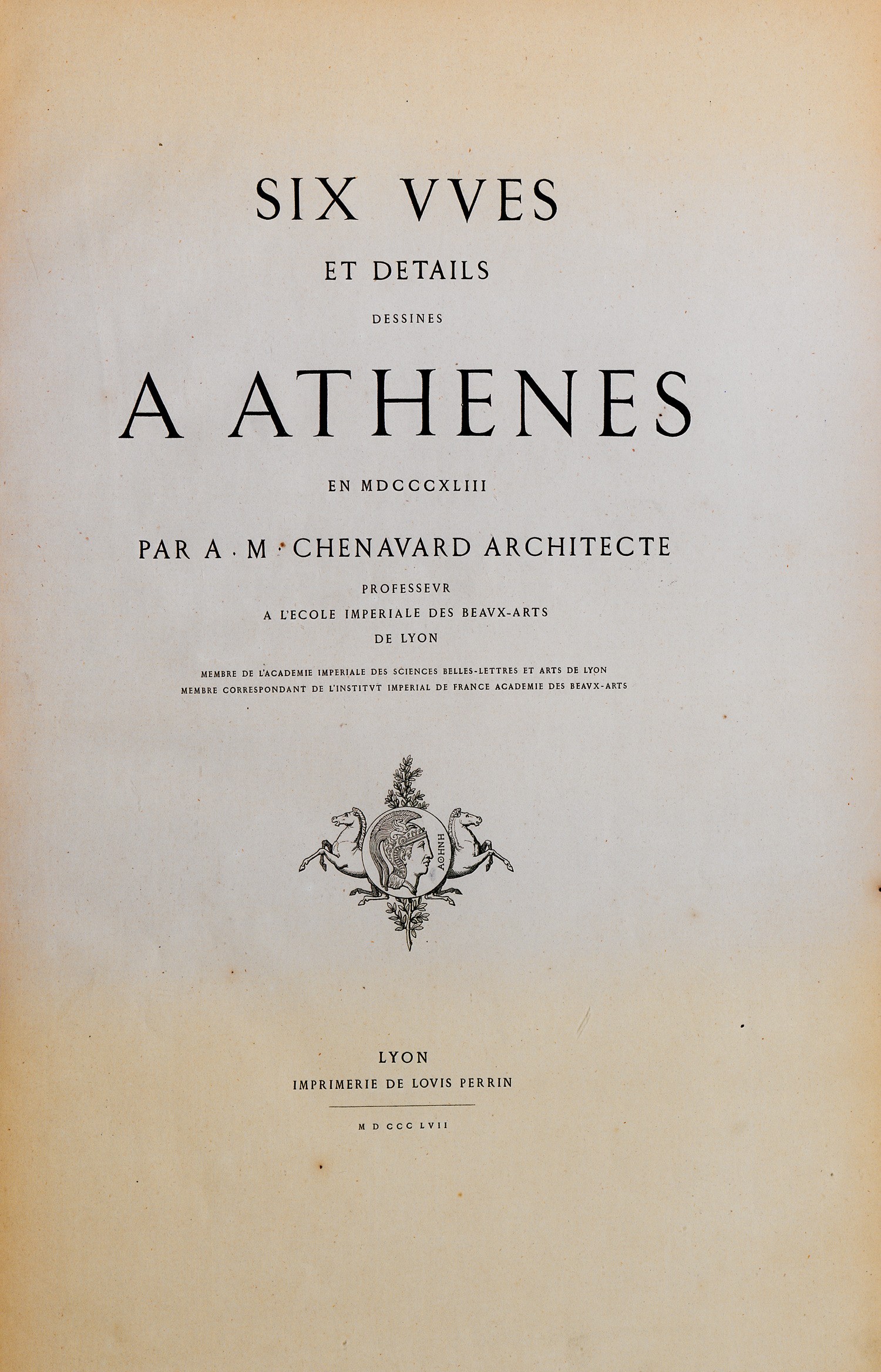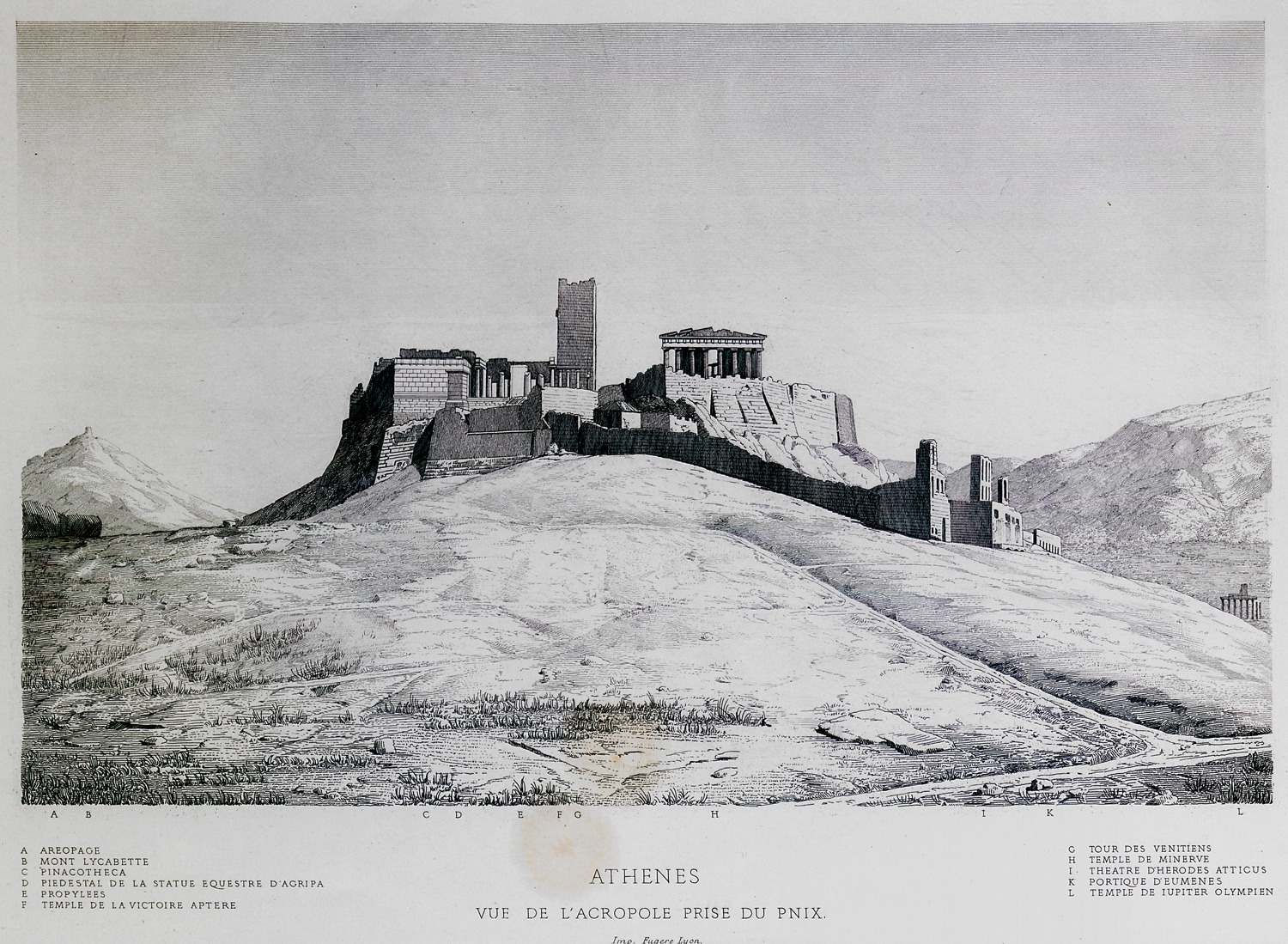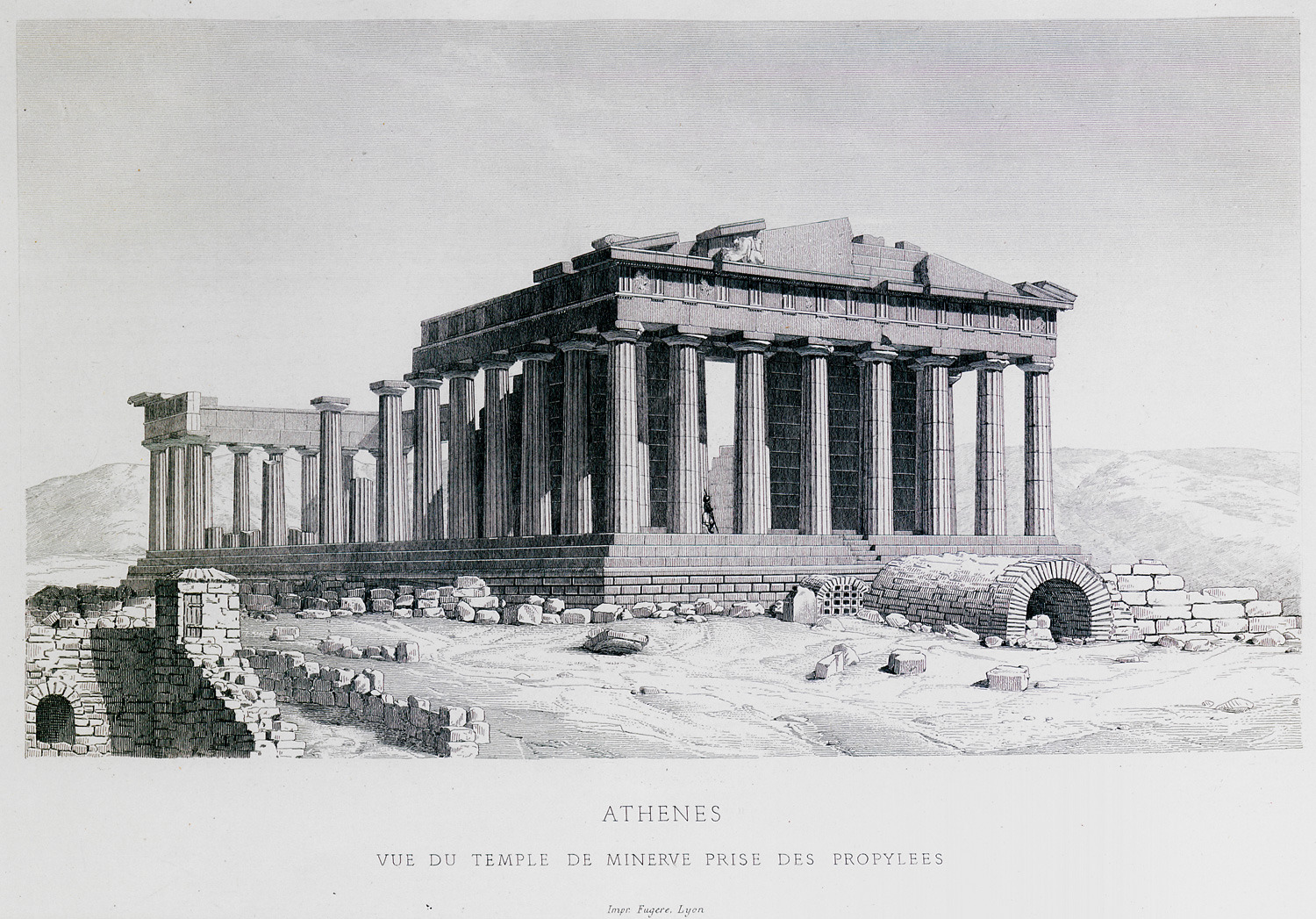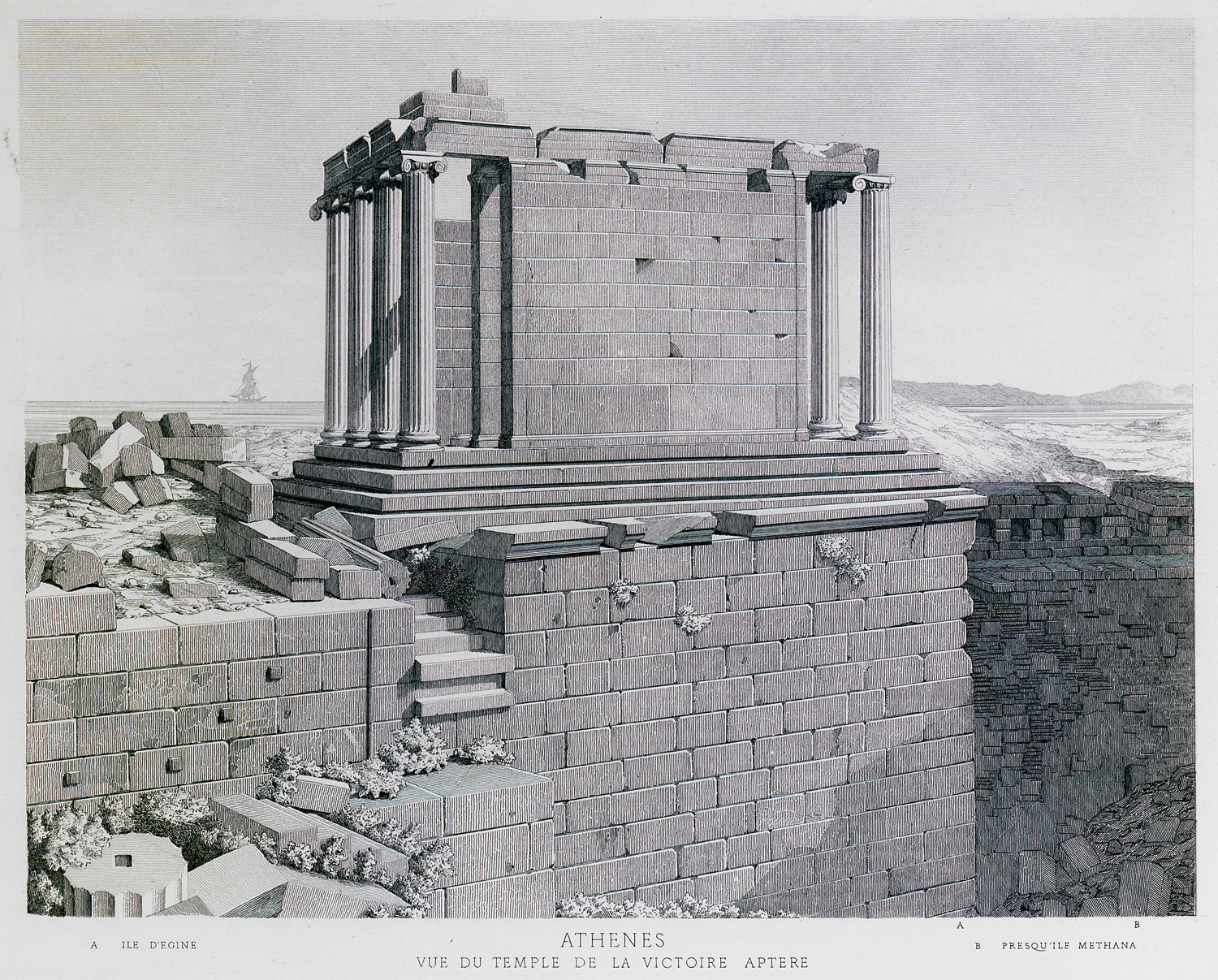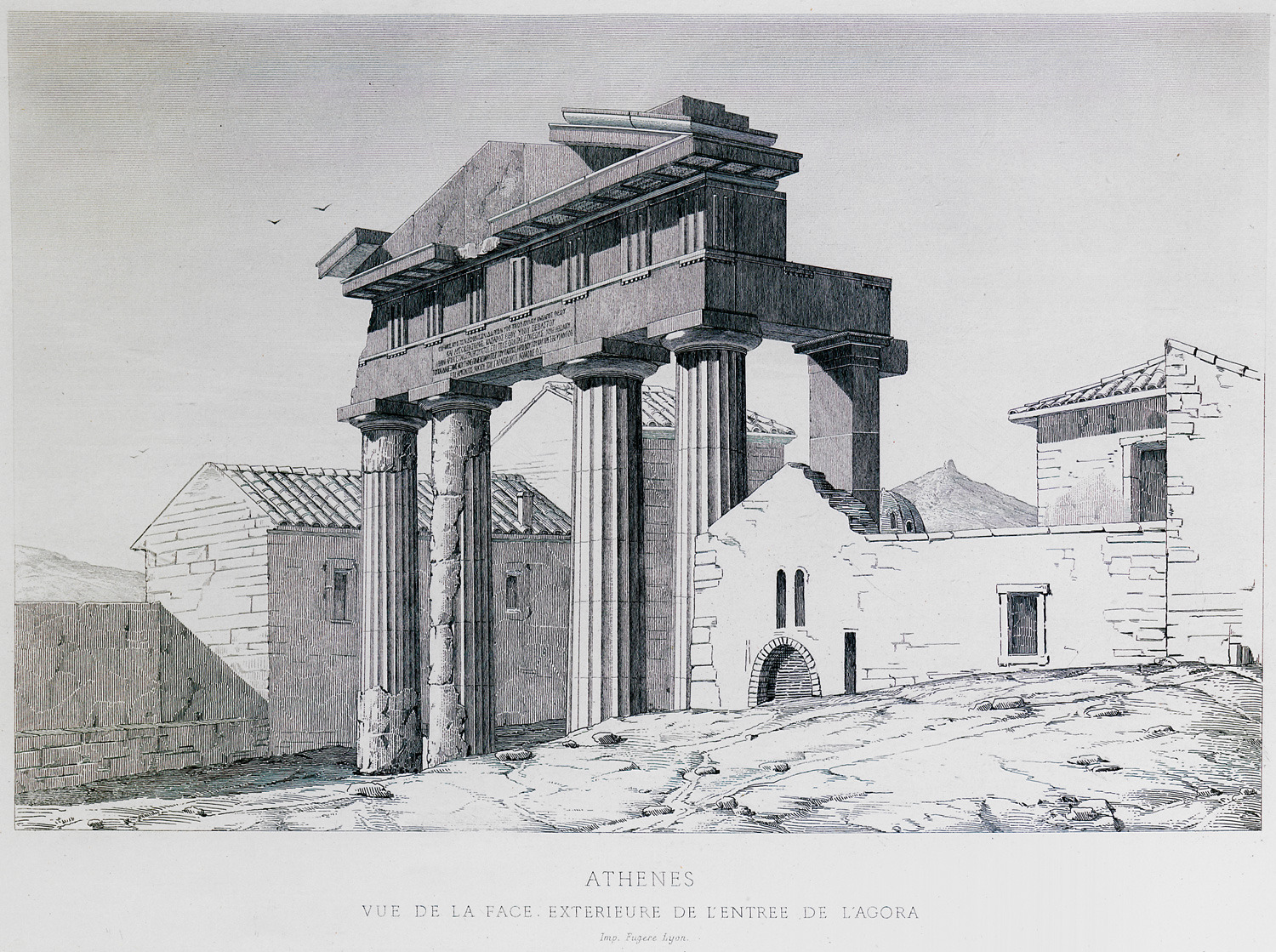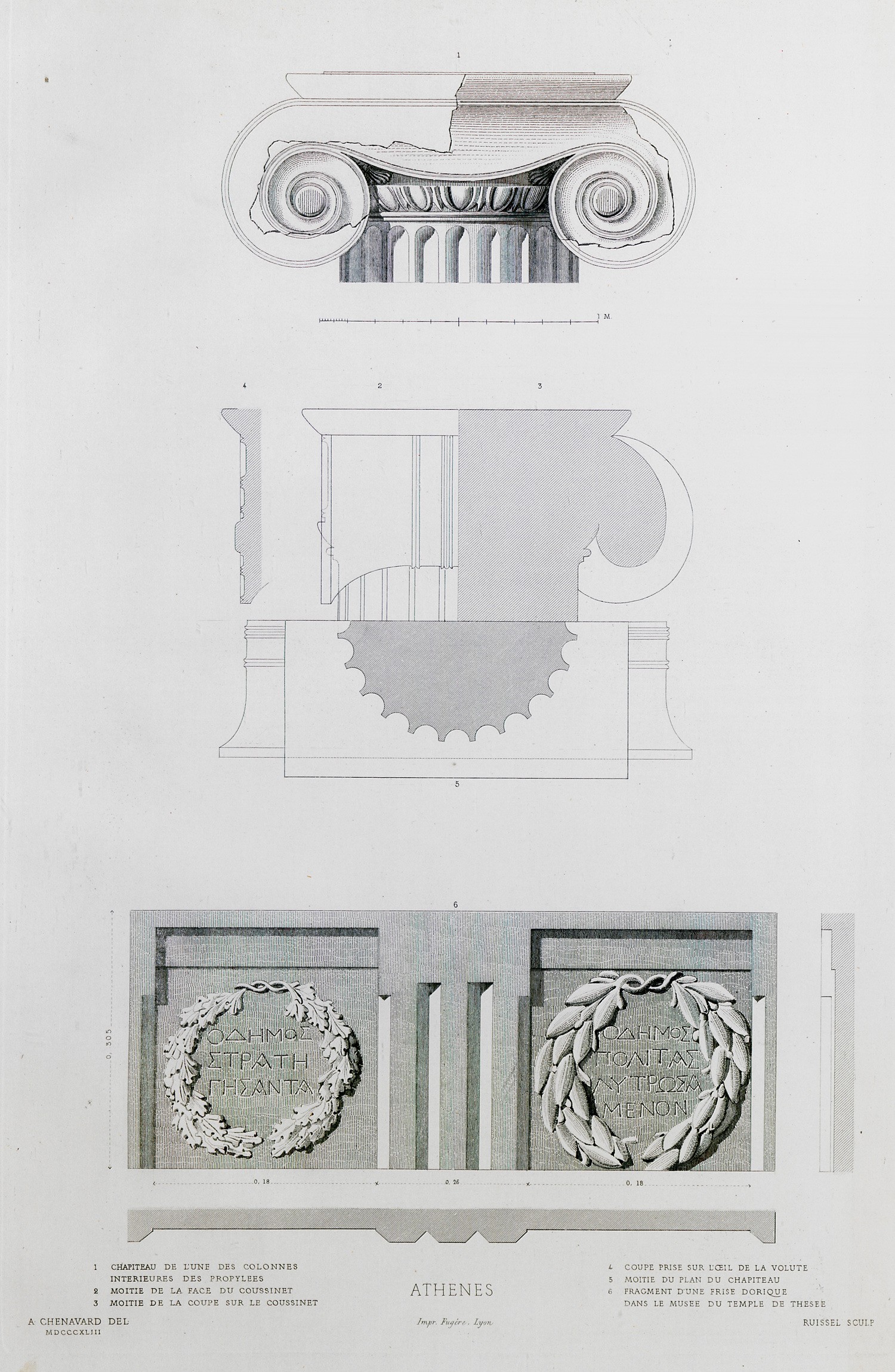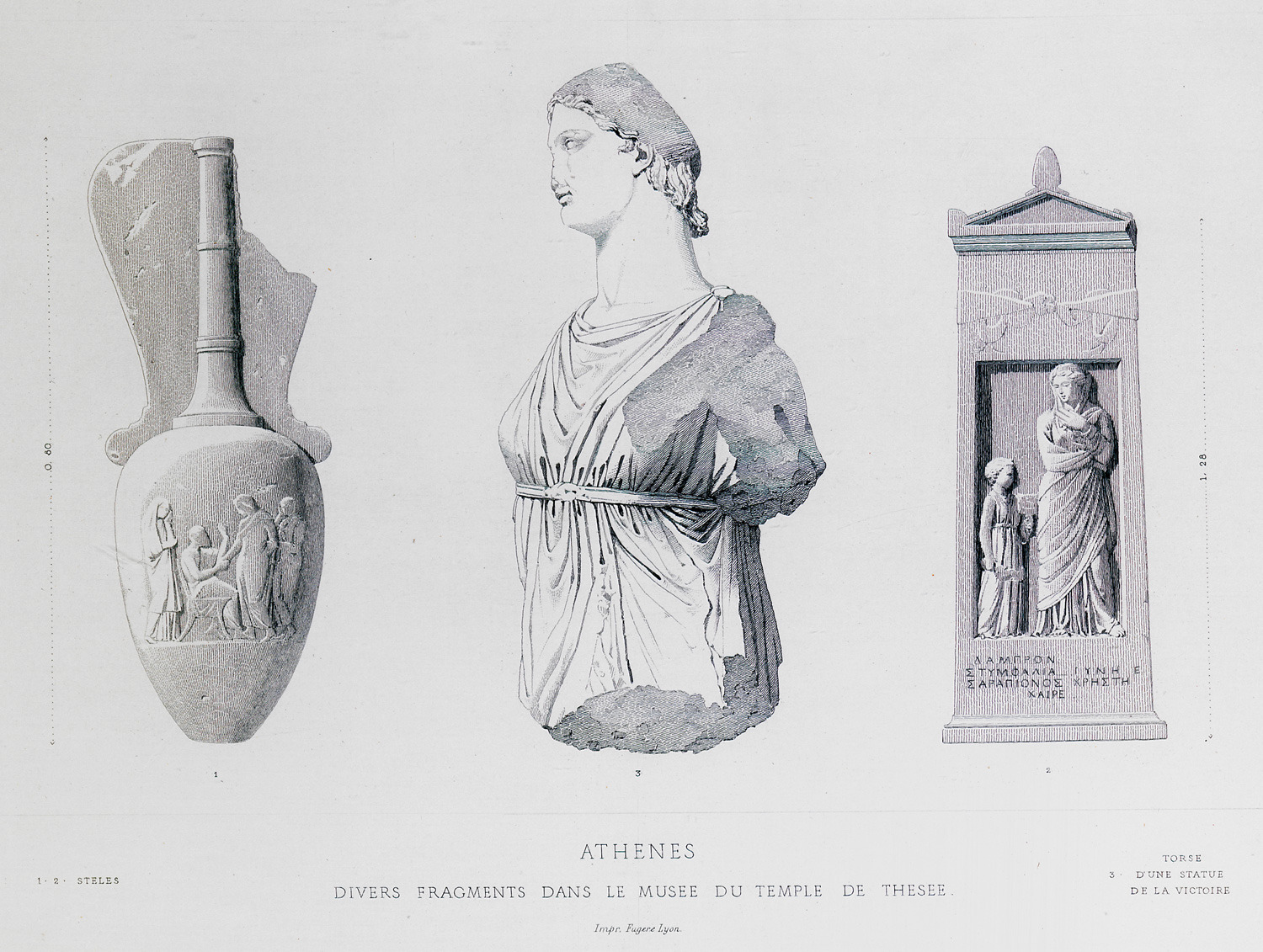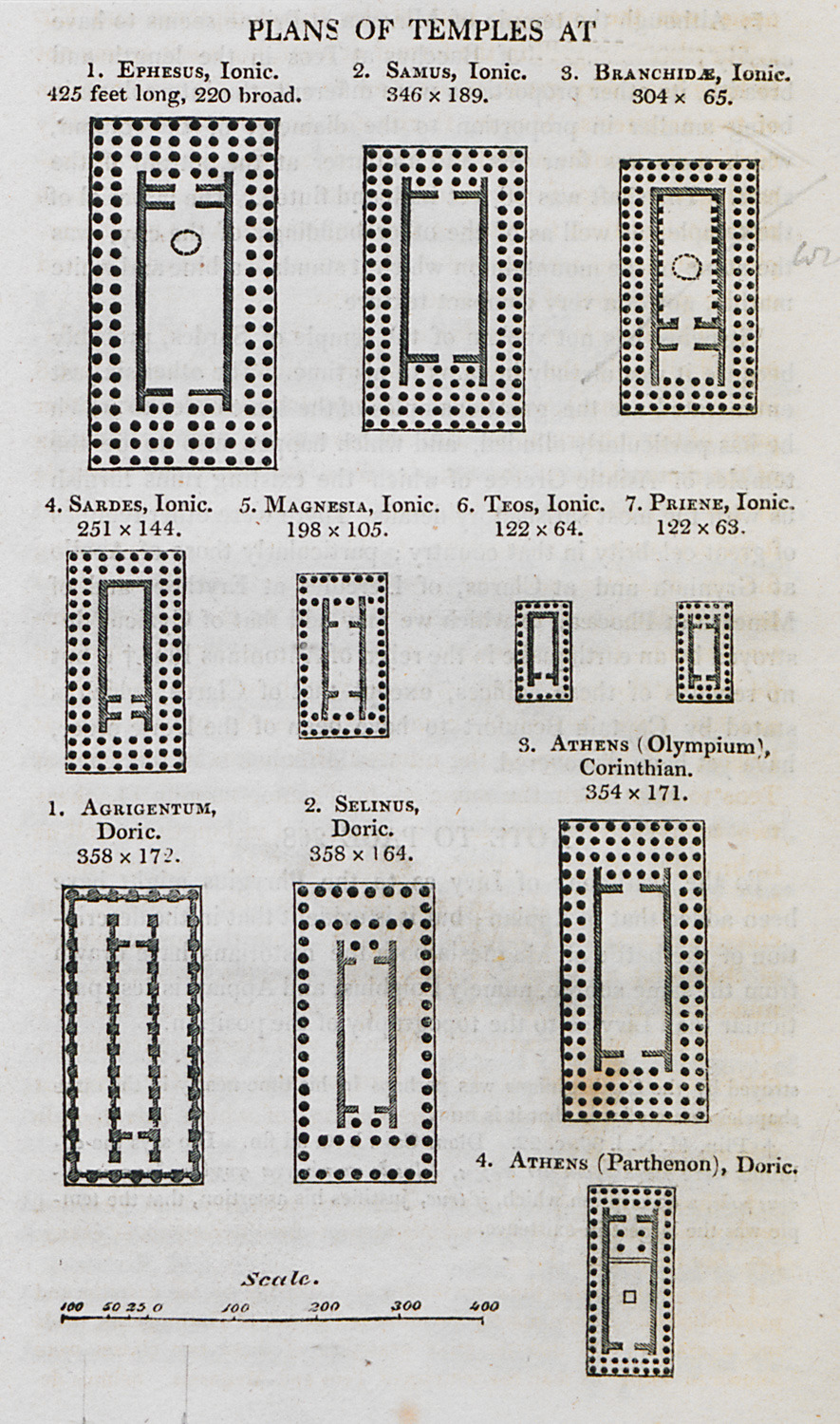Attica (1797 Subjects)
View of Athens from the Academy of Plato. The Acropolis and the temple of Hephaeustus (left) in the background.
View of Athens from the south.
View of Athens from Philopappus Hill.
The temple of Olympian Zeus in Athens.
The Choregic monument of Lysicrates in Athens.
The interior court of a house in Athens.
The quarries of Mount Pentelikon.
The plain of Marathon seen from Brauron.
Landscape at Thorikos, Attica.
View of the Parthenon from the Propylaea. Seated on the ground is Disdar Aga,the governor of the fortress of Acropolis. He has just been surprised by another member of the guard as he was sipping a glass of wine which he took from the travellers.
The west front of the Parthenon and the Erechtheion, from the Propylaea.
The Erechtheion from the southwest. In the distance, on the left, a group of Turkish musician who customarily performed on the Acropolis every day at three o'clock in the afternoon.
Gathering of devout Muslims at the Tower of the Winds in Athens, which was used as a tekije (dervish lodge). Sixteen ostrich eggs hang from the ceiling to avert the evil eye. A depiction of the first stage of the whirling dervishes' ritual: the faithful praise God and Prophet Muhammad.
The dance of the dervishes at the Tower of the Winds in Athens, which was used as a tekije (dervish lodge). Sixteen ostrich eggs hang from the ceiling to avert the evil eye. A depiction of the final stage of the whirling dervishes' ritual: The two main dancers whirl while holding each other by the sash. In green, wearing a white turban, the Sheich or head of the Dervishes, who animates the dancers with his voice and by playing the tambour.
The bazaar of Athens. On the forefront, on the right, an emancipated African slave. On the doorway, the owner of the coffeehouse who is brigning a tray with coffee to the Ottoman governor Disdar Aga. Disdar Aga is sitting on the stairs, dressed in red, and next to him sits another Turkish aga. Standing at the entrance of the coffeehouse, the Greek voivode (governor) of Salamis island, who is conversing a Greek Baratario (protegé of a foreign power). At the centre of the picture, three Turkish women covered with long white veils. According to Edward Dodwell's description, the rest of the women depicted are Arvanite. Standing, on the right, a devout Muslim in green costume, an indication that he has made the pigrimage to Mecca.
The Gate of Mesogeia or Gate of Boubounistra, which was situated at the present-day junction of Amalias avenue with Othonos street. In the background, the fountain of Boubounistra.
View of the temple of Olympian Zeus and Ilissus river.
Athens from the feet of Lycabettus Hill.
South-east view of the temple of Poseidon at Sounion.
Coins of ancient Athens. Coins of the city of Neapolis (today Kavala) in Macedonia, which was a member of the Athenian League.
The fortresss of Fyli at the feet of Mount Parnitha.
The plain of Marathon.
Title page.
The Acropolis seen from Pnyx hill.
The Parthenon seen from the Propylaea.
The temple of Athena Nike at the Acropolis of Athens.
The Gate of Athena Archegetis at the Roman Agora of Athens.
Antiquities from Athens: 1. Ionic column capital from the inner peristyle of the Propylaea of the Acropolis. 2. Drawings of the entablature, side view and section of a column capital from the inner peristyle of the Acropolis Propylaea. Plan of Ionic column, drawings of the pedestal. 3. Inscriptions on a metope found in the ancient Agora of Athens.
1, 3: Votive offerings, possibly from Kerameikos cemetery: Urn with relief, funerary stele. 2. Statue of Nike.
Comparison of plans of ancient temples as to their size: The temple of Artemis at Ephesus (1), the Heraion of Samos (2), the sanctuary of Apollo at Didyma (3), the temple of Artemis at Sardes (4), the temple of Artemis Leucophryene at Magnesia on the Maeander (5), the temple of Dionysus at Teos (6), the temple of Athena Polias at Priene (7), in Ionic order. The temples of Agrigento (1) and Selinunte (2) in Doric order, the temple of Olympian Zeus at Athens (Corinthian order) and the Parthenon (Doric order).


